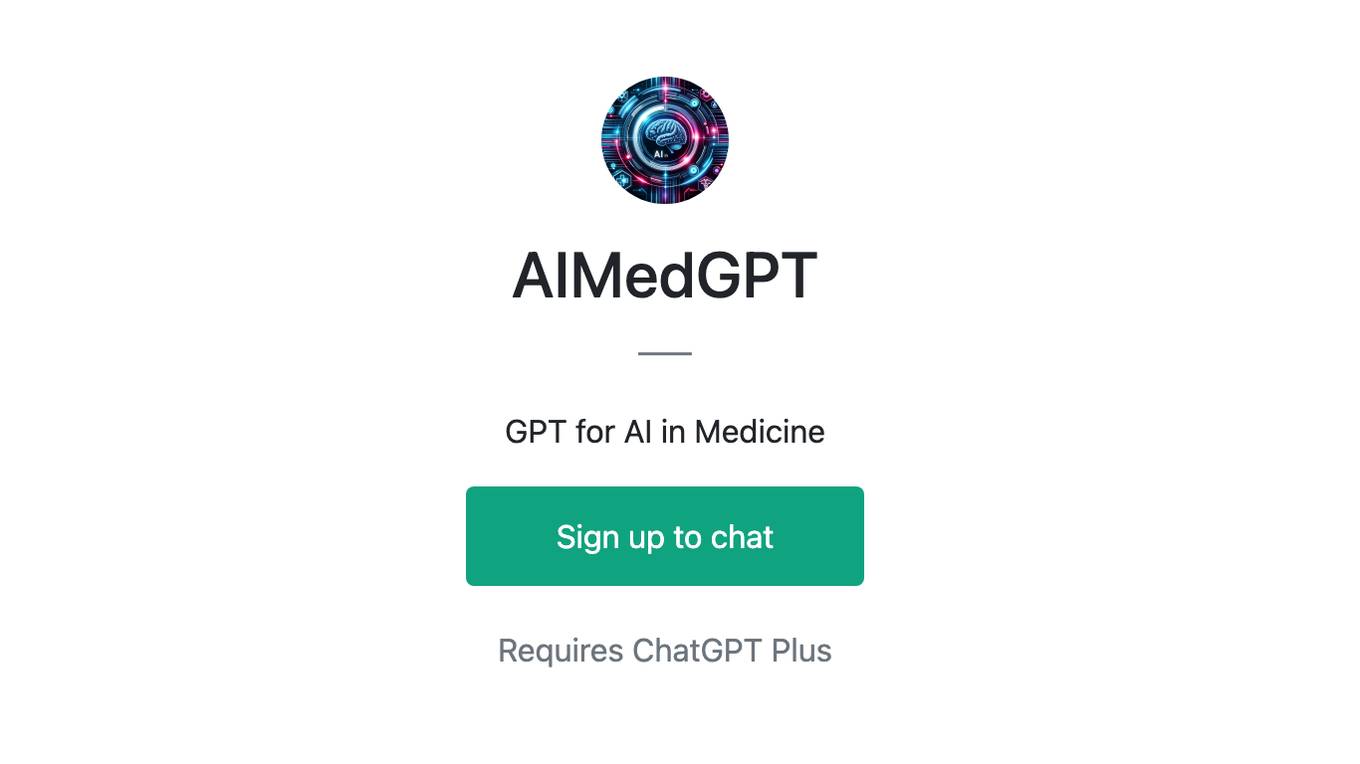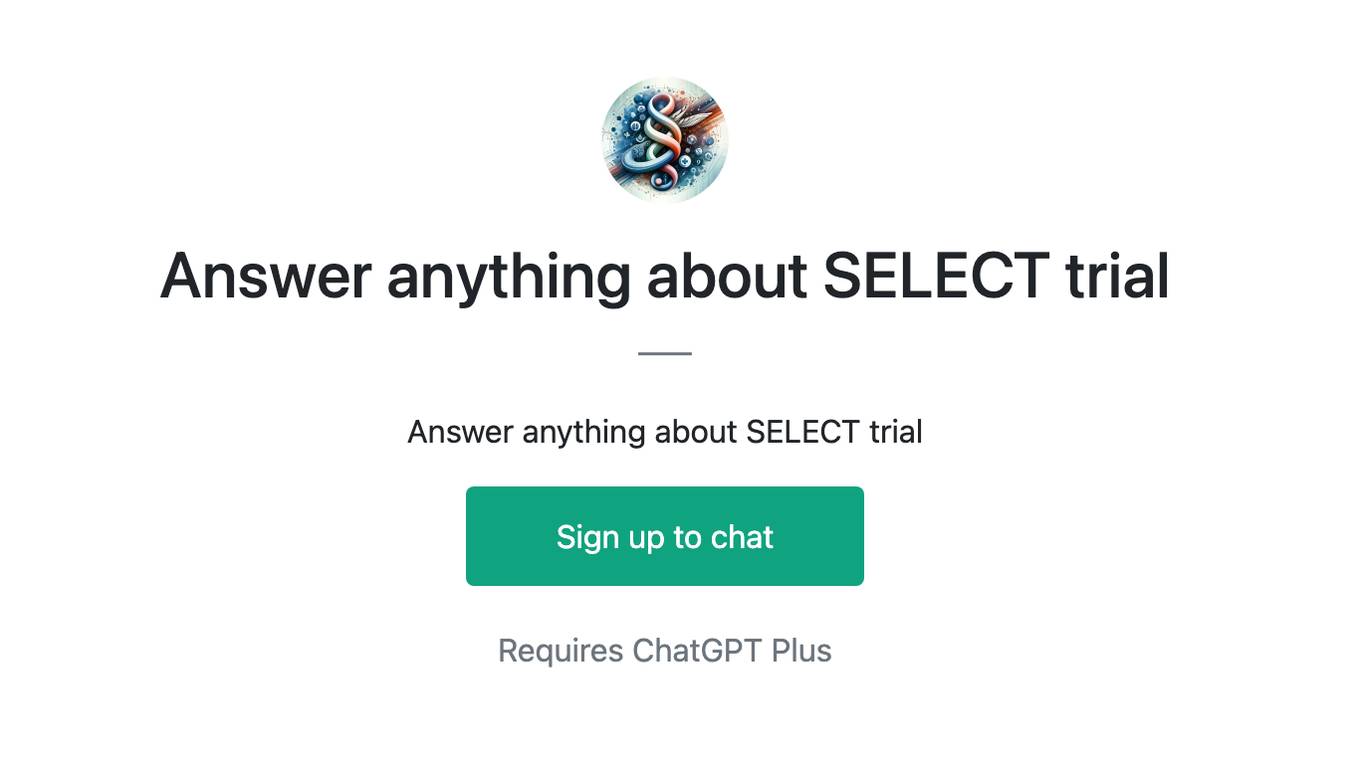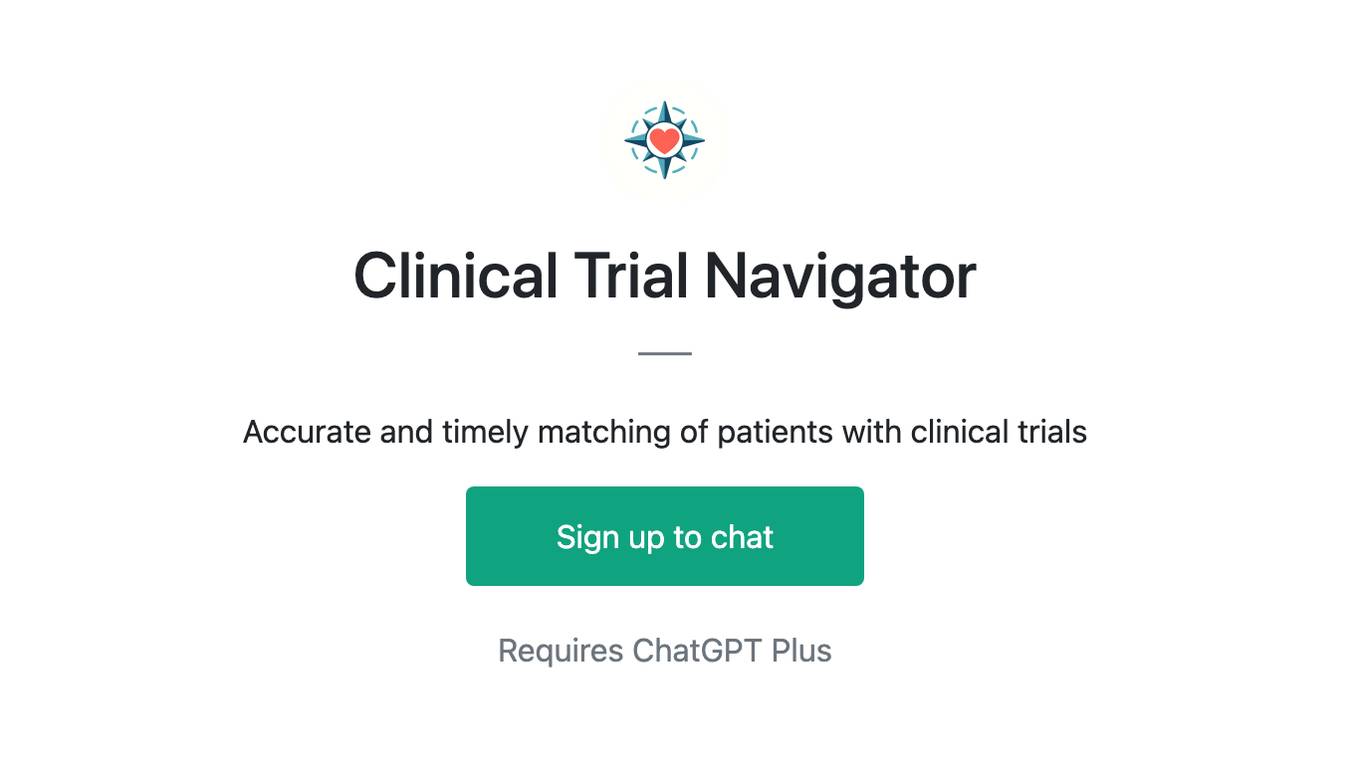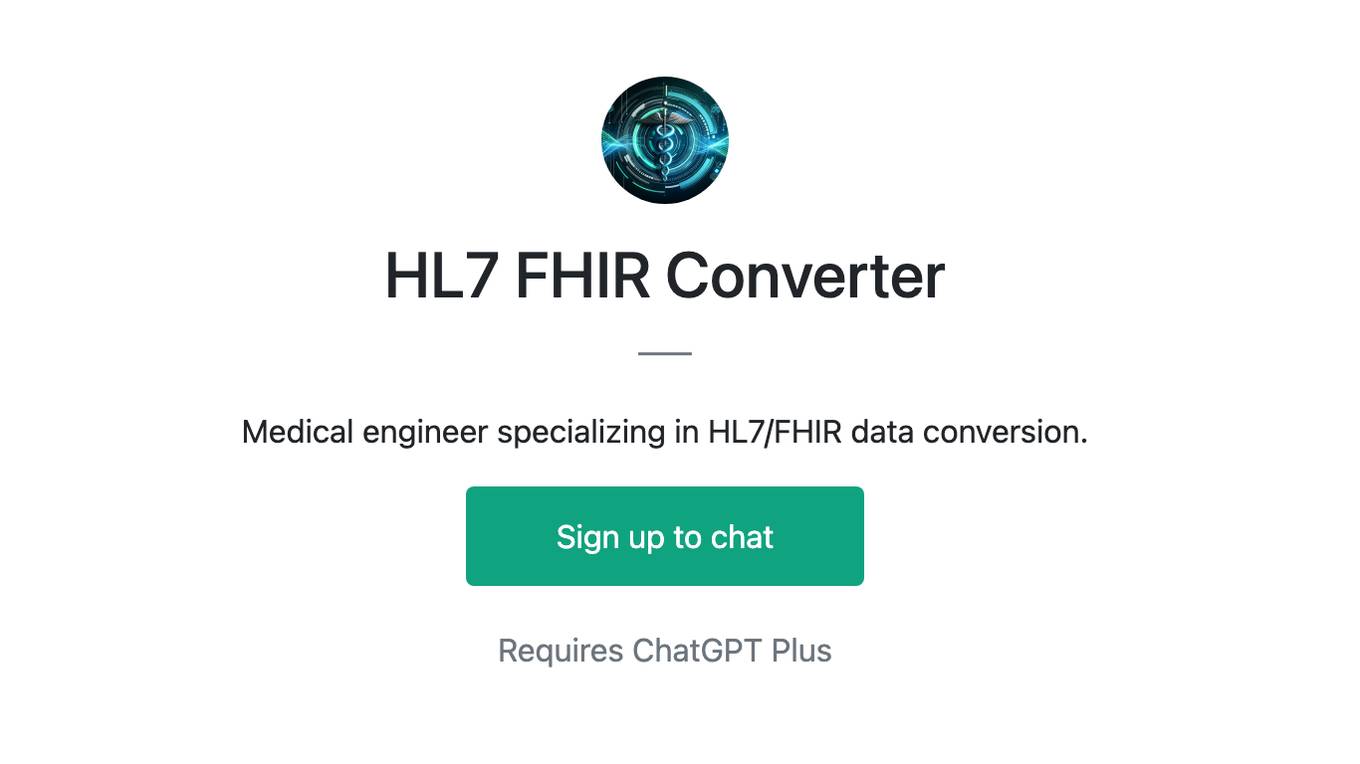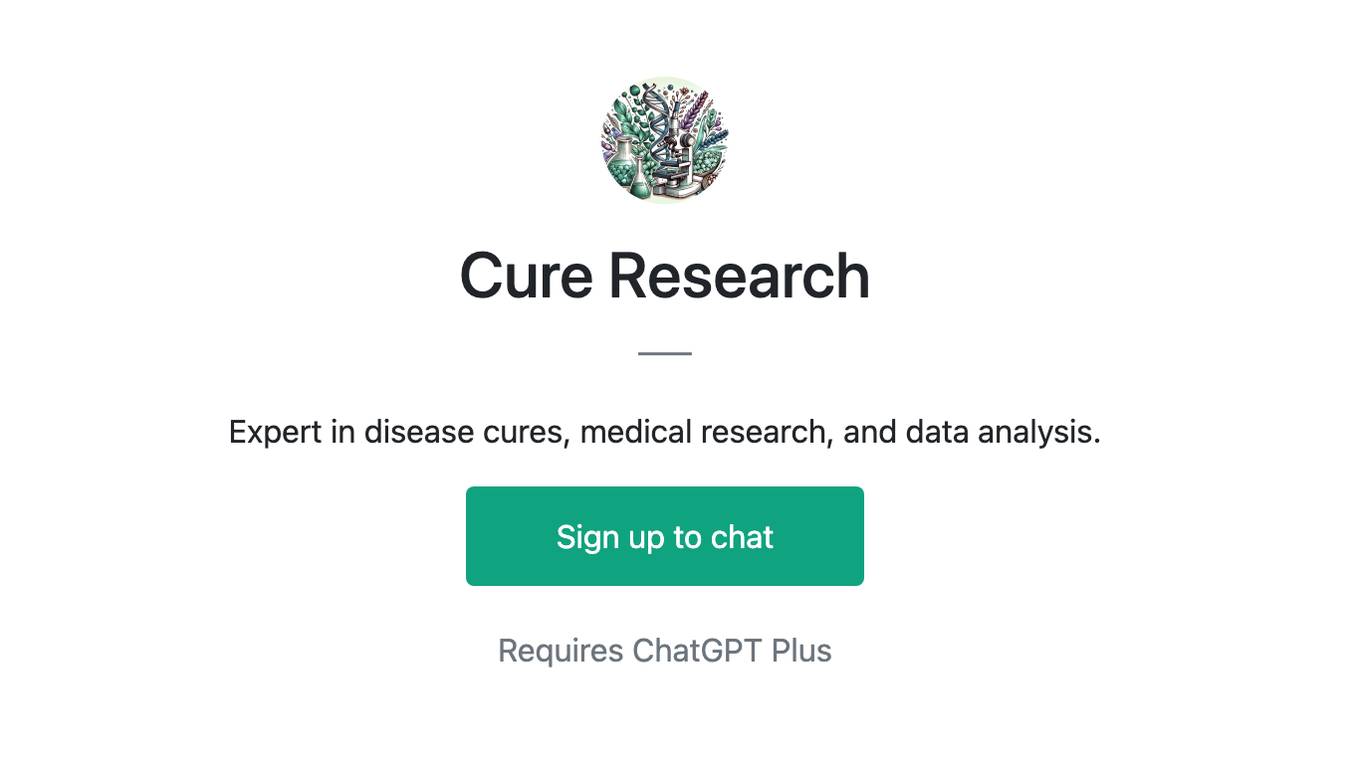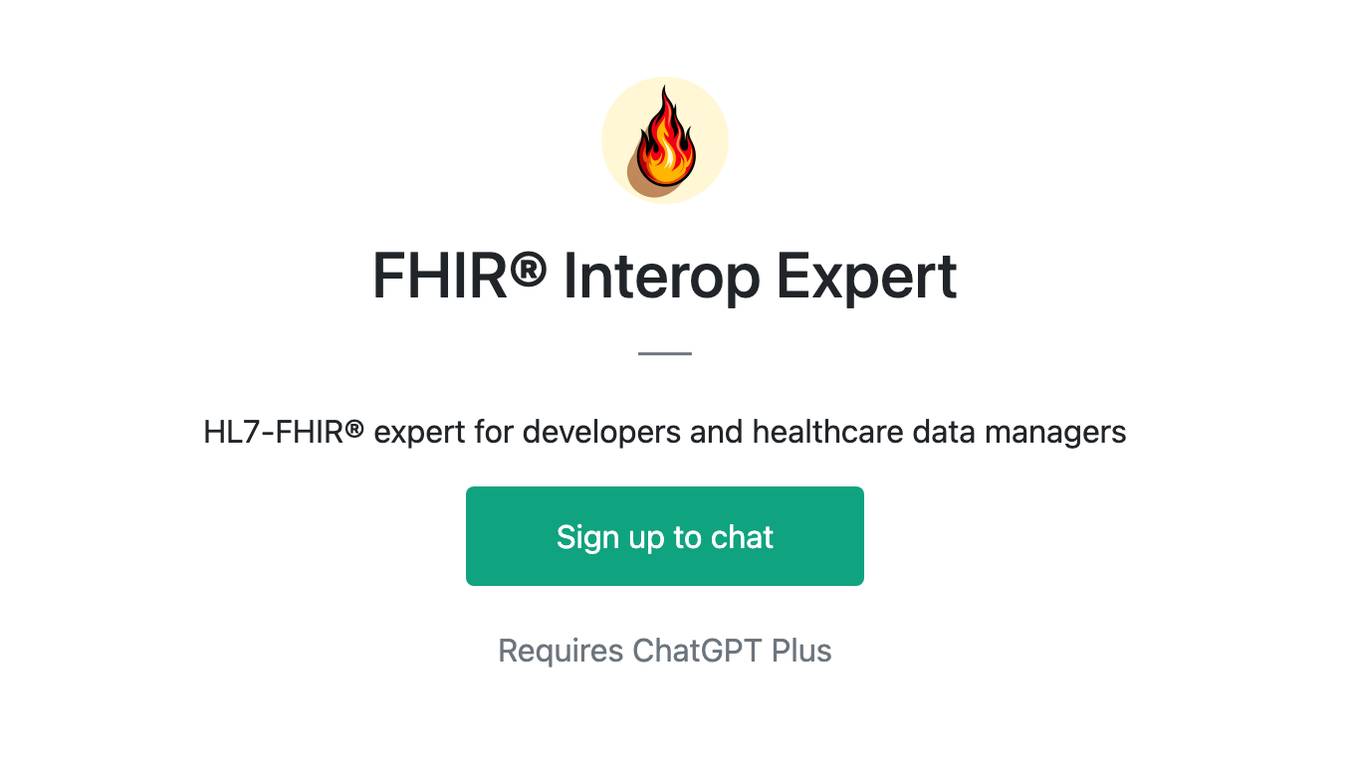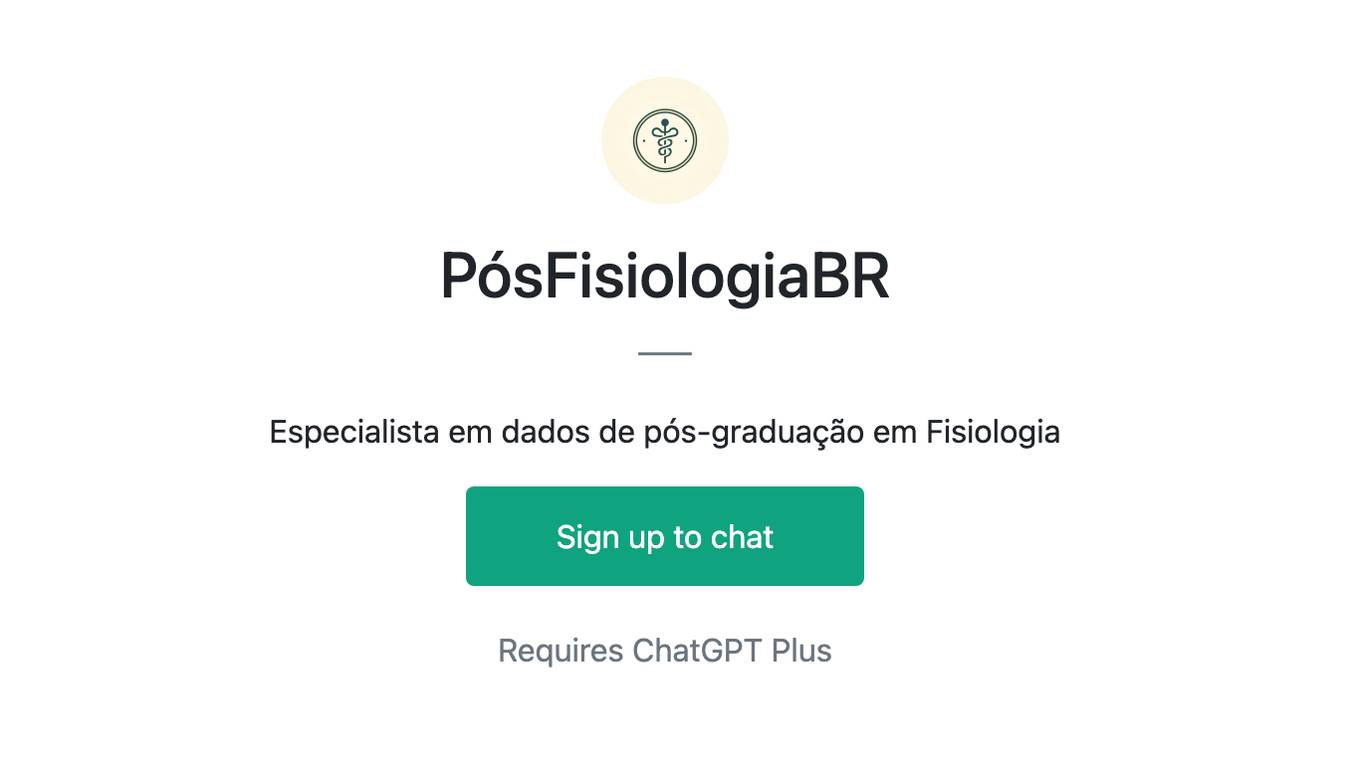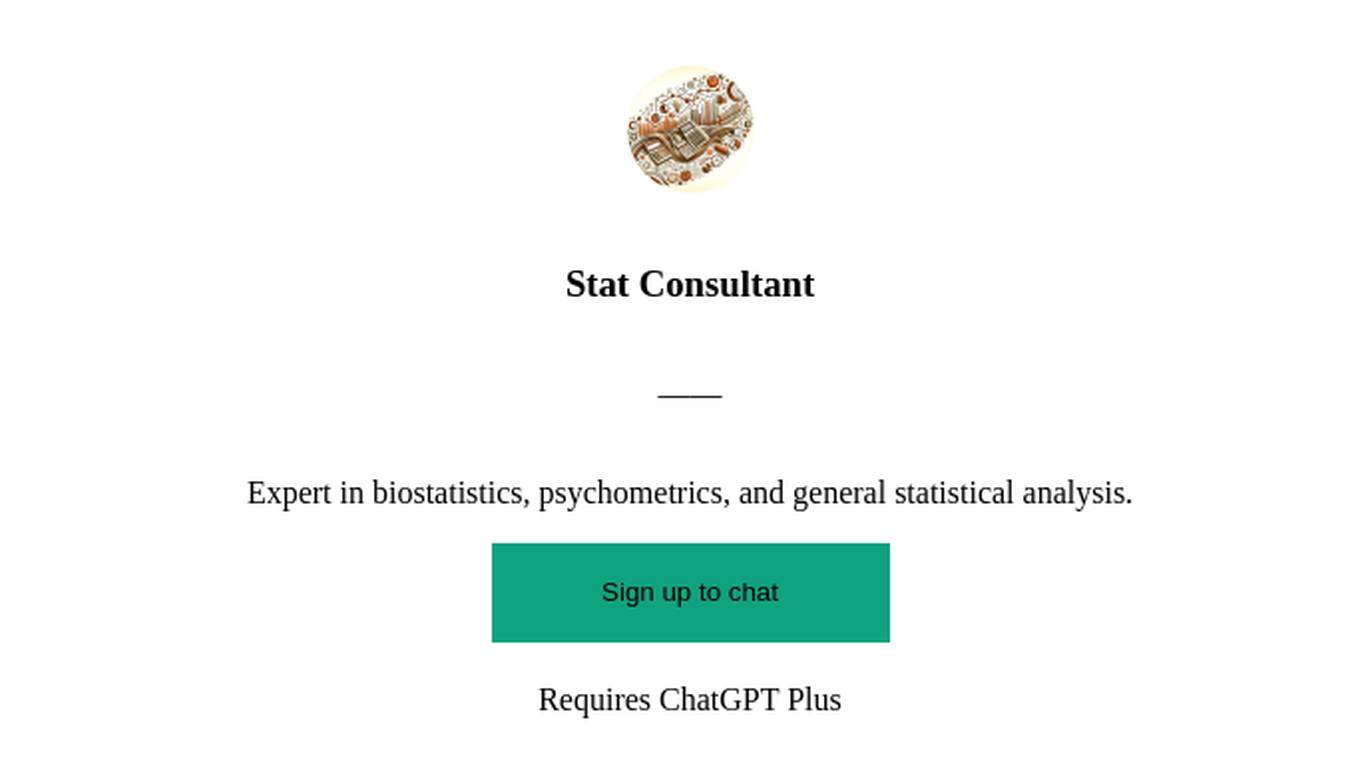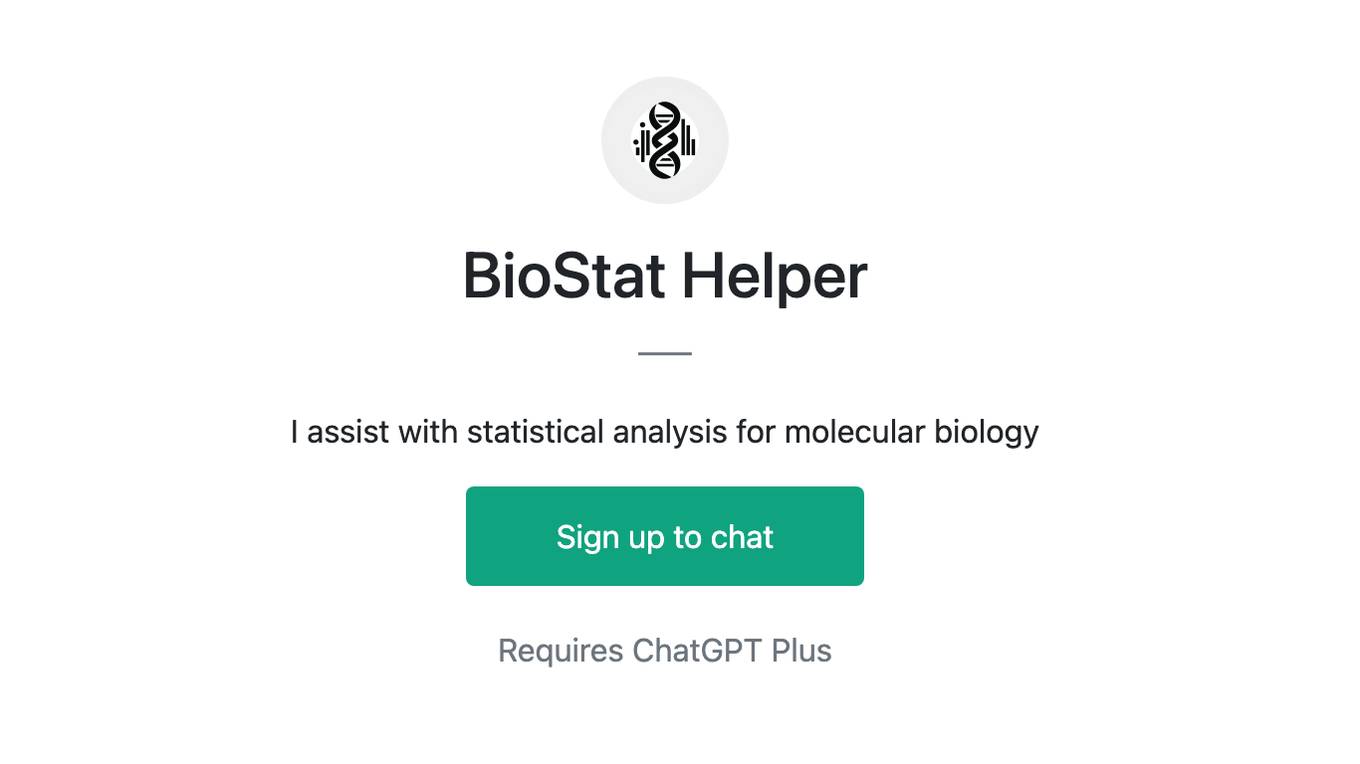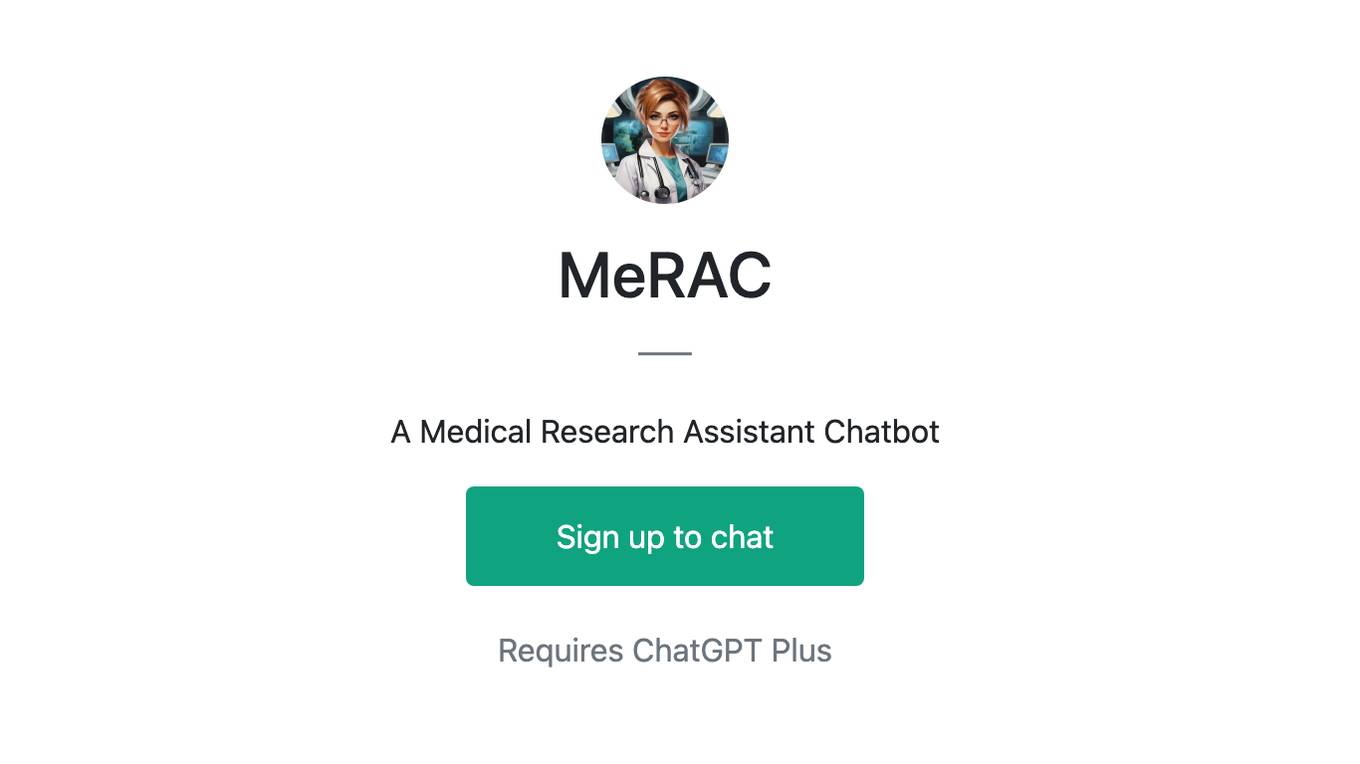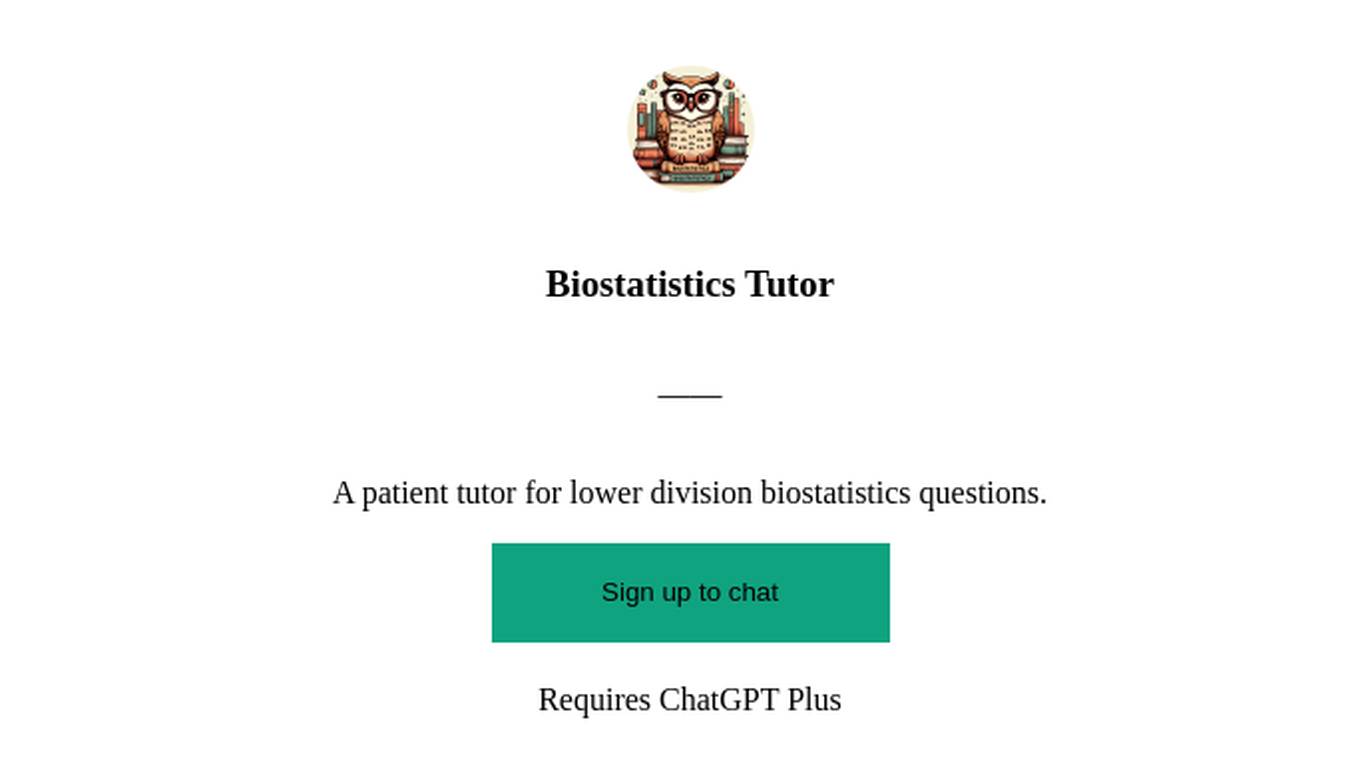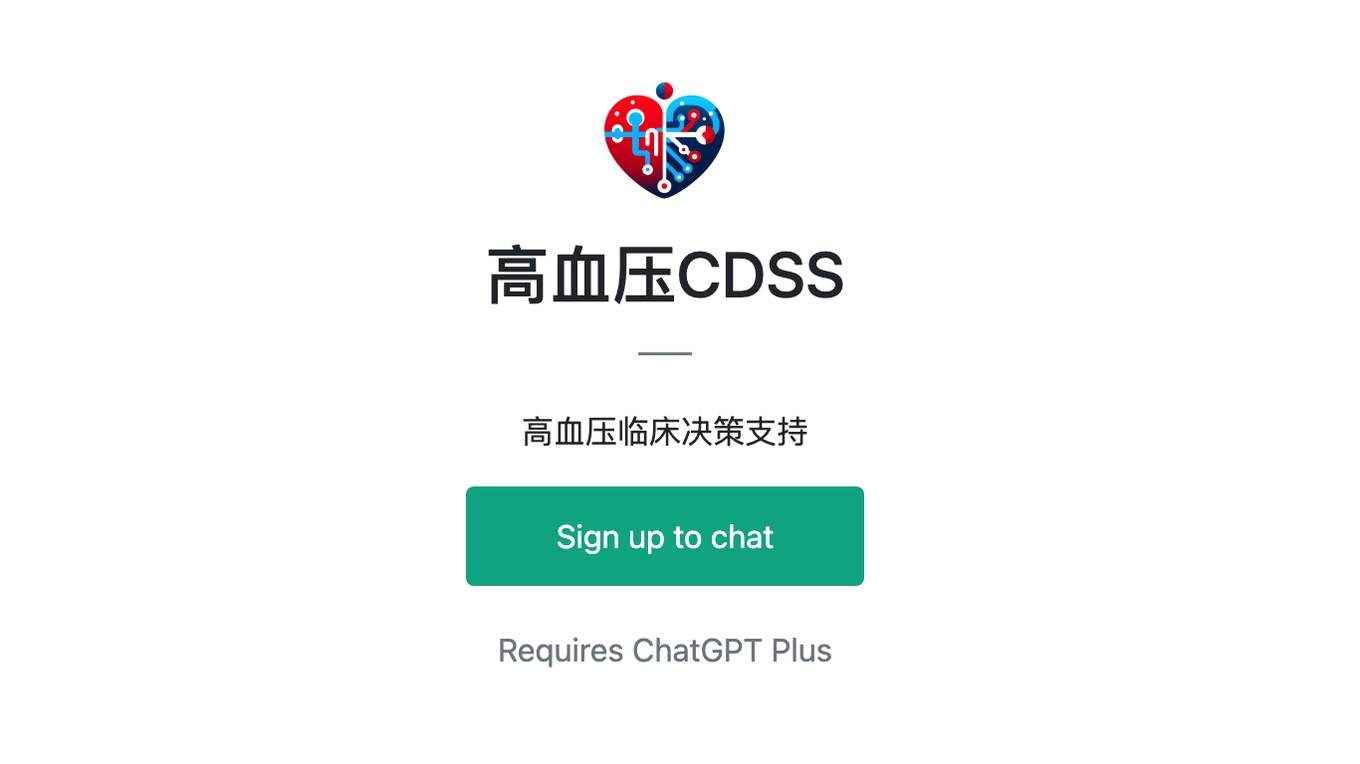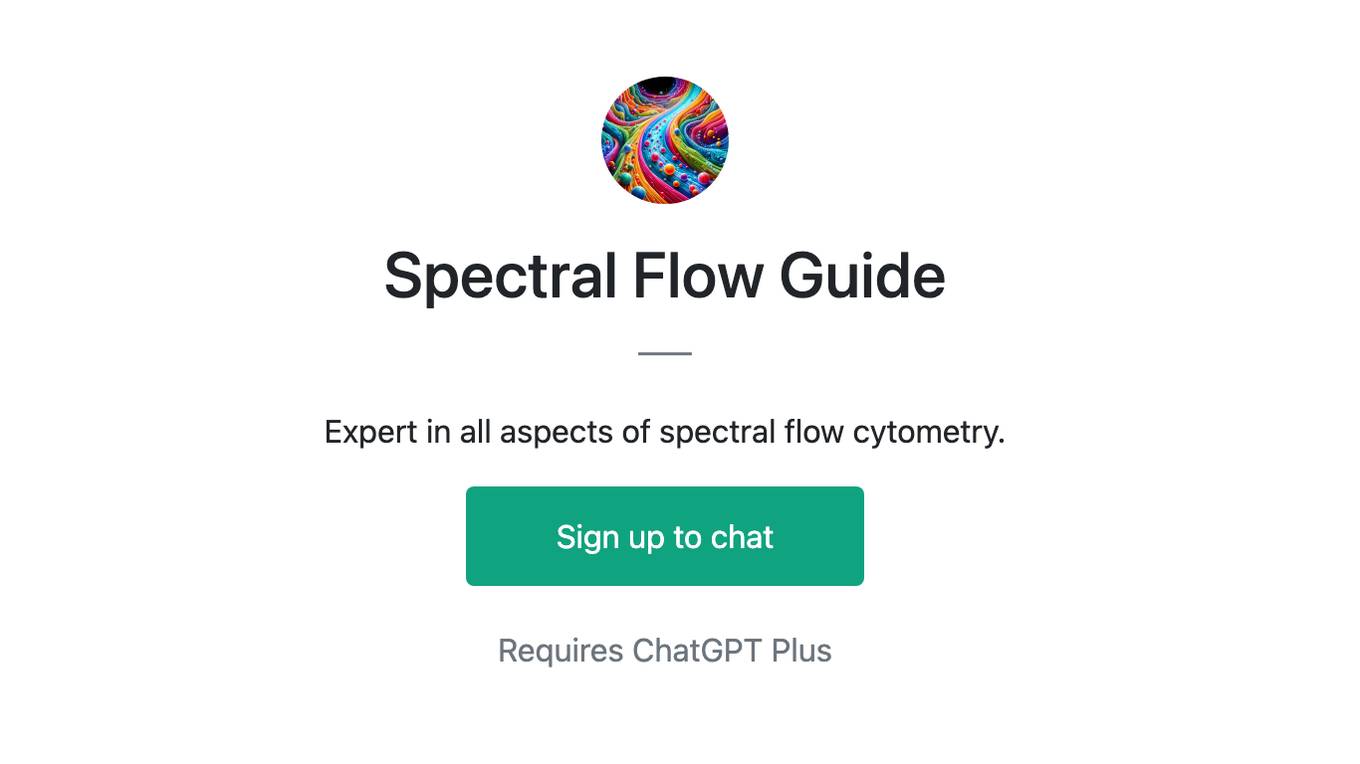Best AI tools for< Clinical Data Analyst >
Infographic
15 - AI tool Sites
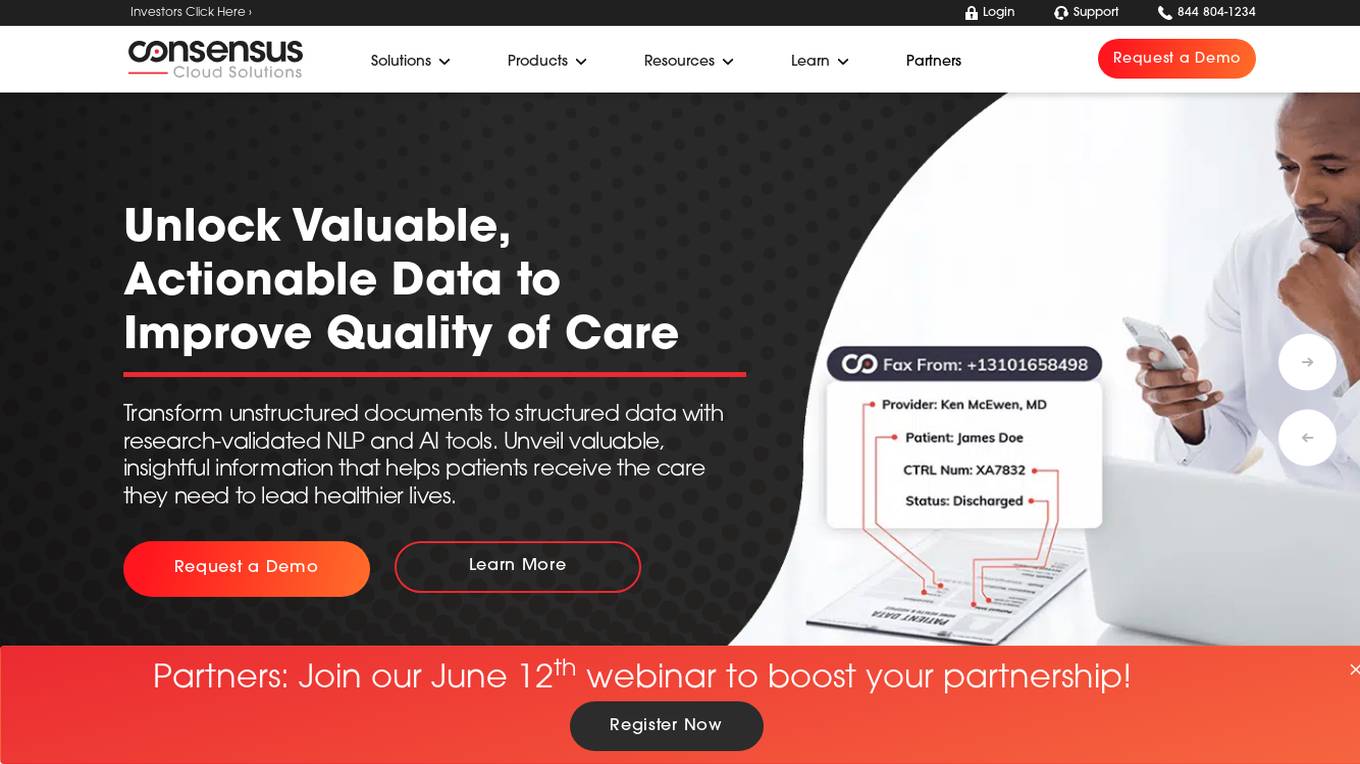
Consensus
Consensus is a healthcare interoperability platform that simplifies data exchange and document processing through artificial intelligence technologies. It offers solutions for clinical documentation, HIPAA compliance, natural language processing, and robotic process automation. Consensus enables secure and efficient data exchange among healthcare providers, insurers, and other stakeholders, improving care coordination and operational efficiency.
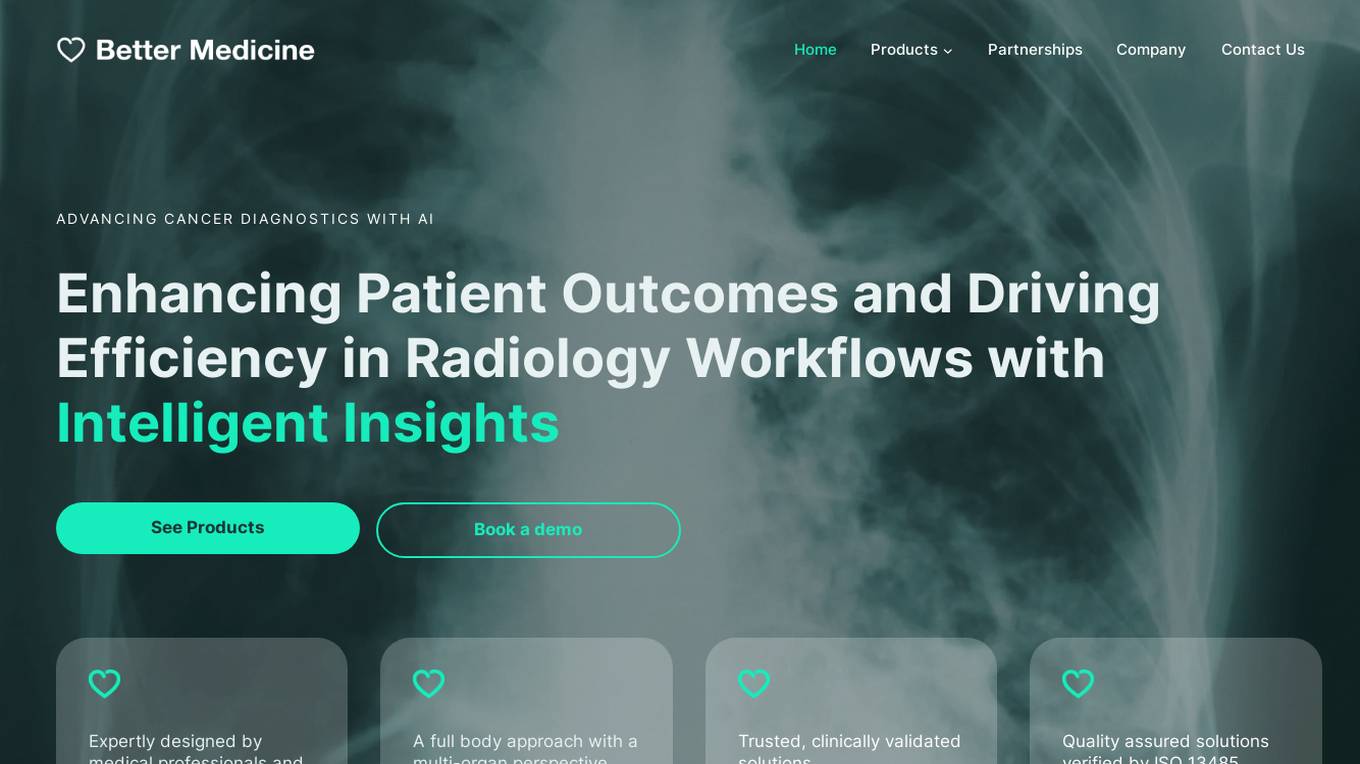
BetterMedicine
BetterMedicine is an AI software designed for cancer diagnostics and detection. It offers AI-powered solutions to enhance patient outcomes and drive efficiency in radiology workflows. The software is expertly designed by medical professionals and AI specialists, providing trusted and clinically validated solutions. BetterMedicine aims to address inefficiencies in radiology by integrating AI-powered software for detecting lesions on CT scans seamlessly into the workflow, thereby improving efficiency and reducing the risk of oversight. The application focuses on improving patient outcomes, reducing errors, and enhancing the wellbeing of radiology professionals.
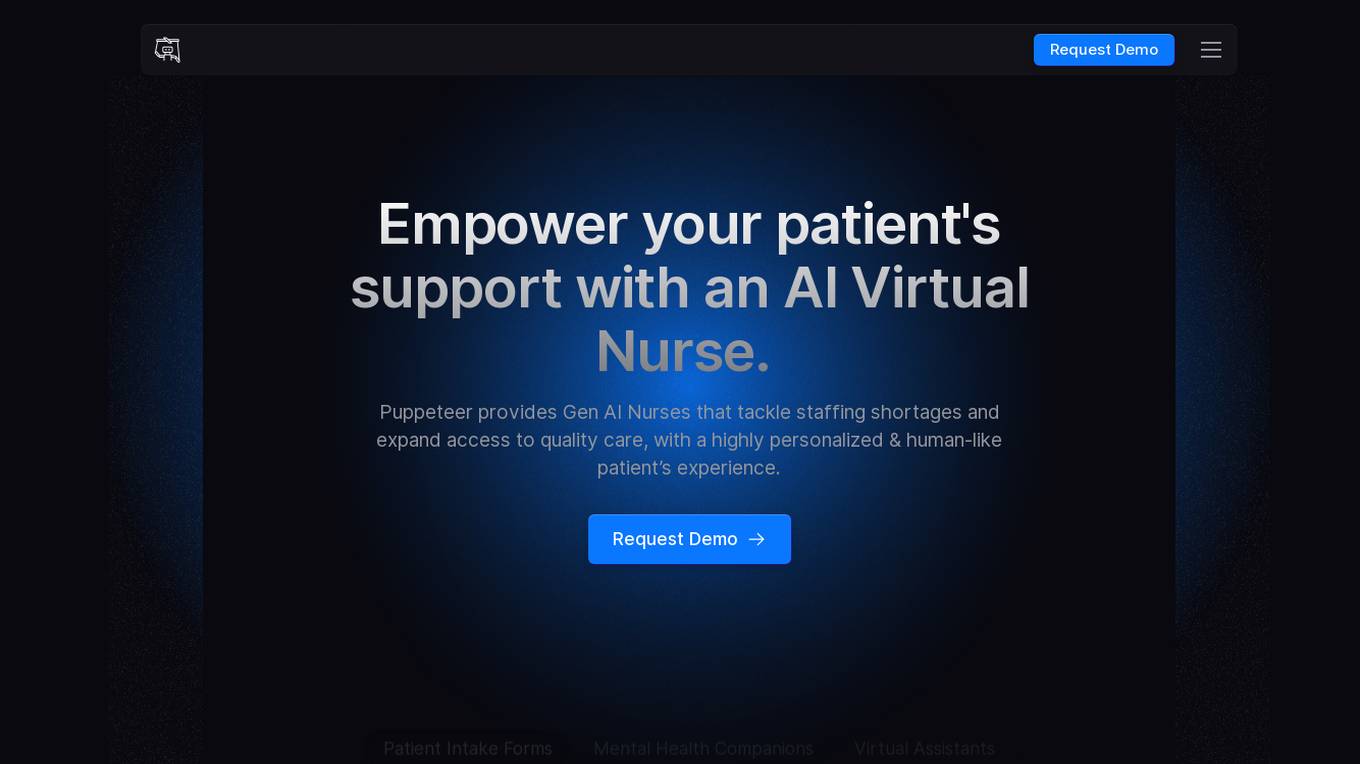
Puppeteer
Puppeteer is an AI application that offers Gen AI Nurses to empower patient support in healthcare. It addresses staffing shortages and enhances access to quality care through personalized and human-like patient experiences. The platform revolutionizes patient intake with features like mental health companions, virtual assistants, streamlined data collection, and clinic customization. Additionally, Puppeteer provides a comprehensive solution for building conversational bots, real-time API and database integrations, and personalized user experiences. It also offers a chatbot service for direct patient interaction and support in psychological help-seeking. The platform is designed to enhance healthcare delivery through AI integration and Large Language Models (LLMs) for modern medical solutions.
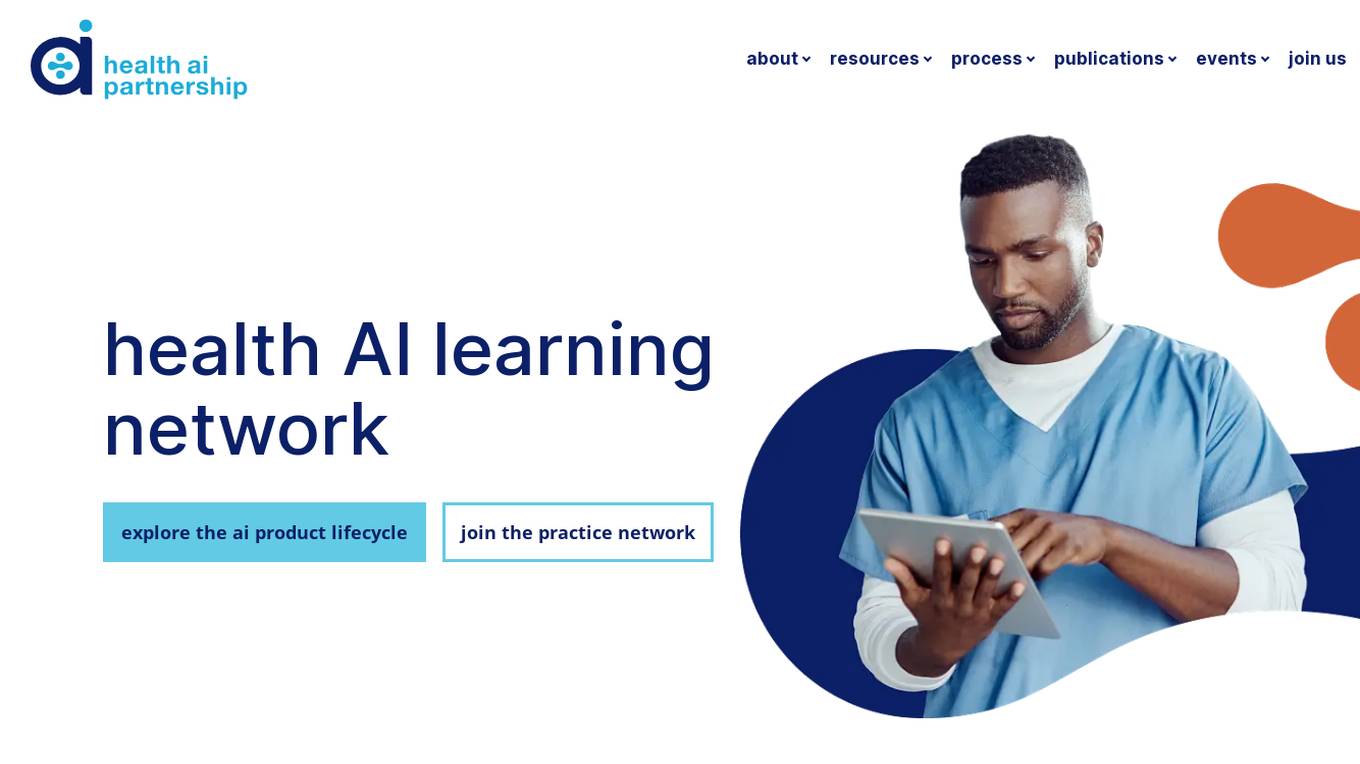
Health AI Partnership
Health AI Partnership (HAIP) is an AI tool designed to empower healthcare professionals to effectively, safely, and equitably use AI through community-informed up-to-date standards. The platform offers resources, publications, events, and a practice network to advance the use of AI in healthcare and support professionals in implementing AI solutions.
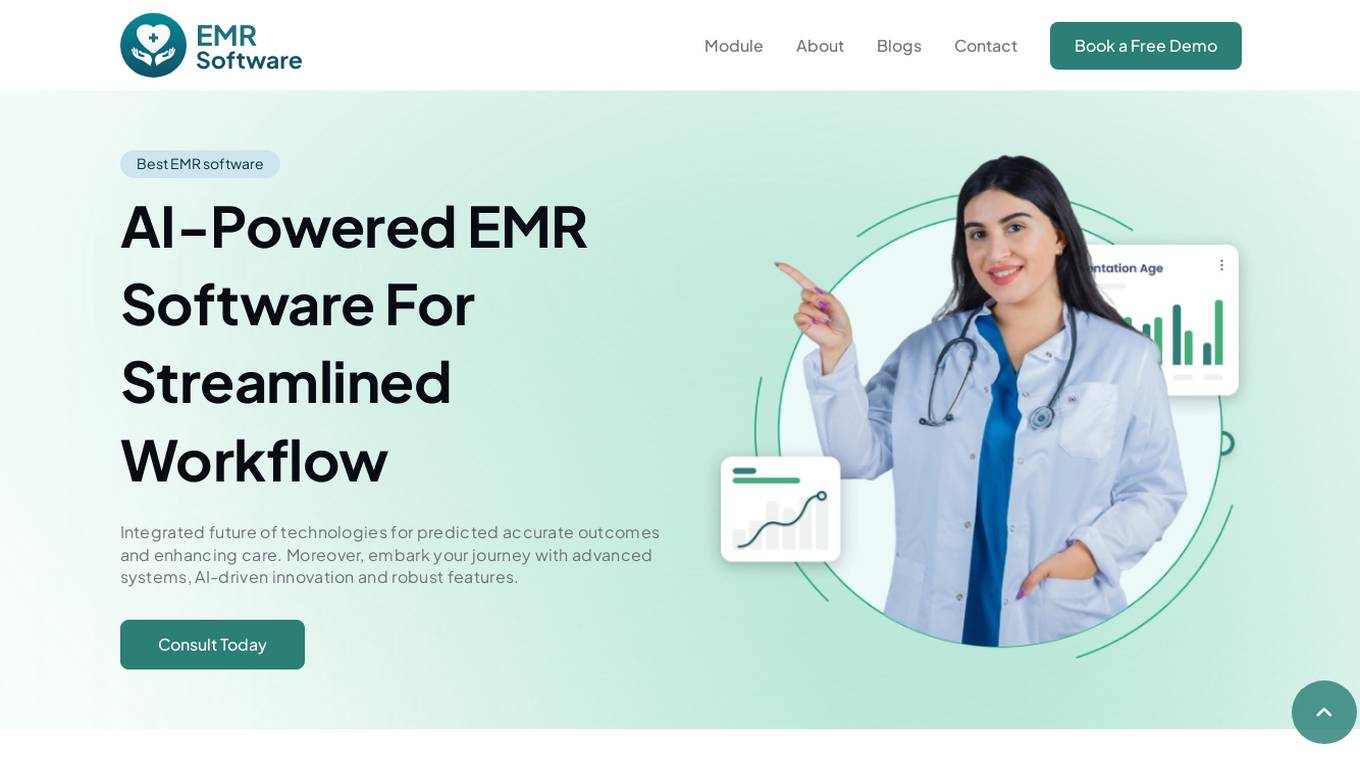
EMR Software
The EMR Software is an AI-powered application designed to streamline healthcare practices by integrating future technologies for accurate outcomes and enhanced care. It offers innovative features such as natural language processing, AI-powered assistant, task automation, and radiology image enhancement. The software aims to reduce medical costs, improve turnover rates, increase medical efficiency, and enhance patient retention rates. It provides data security, clinical management, e-billing processes, revenue management, and tele-monitoring. EMR Software assists in managing clients effortlessly, improving billing operations, maximizing hospital profits, consulting patients remotely, and tracking chronic disease progression.
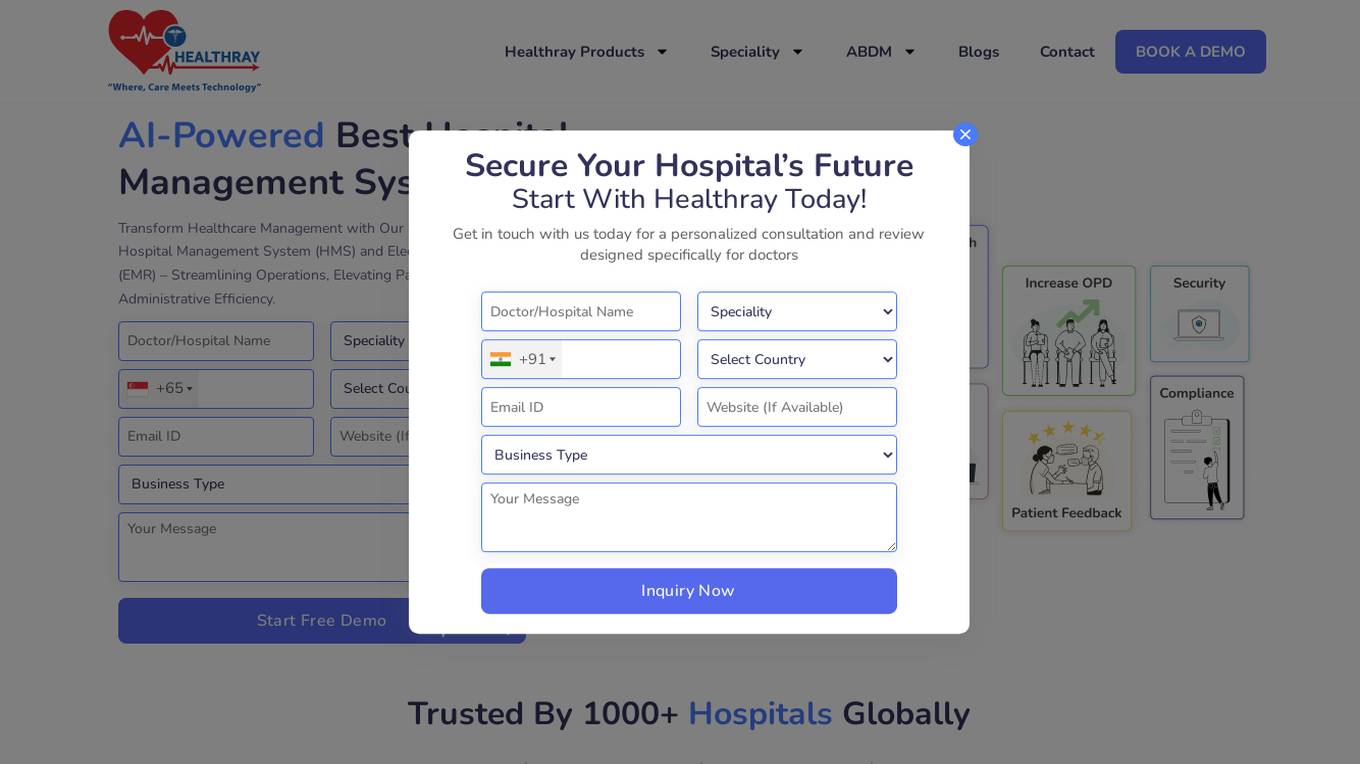
Healthray
Healthray is a Next-Gen AI Hospital Management System that offers a comprehensive suite of healthcare software solutions, including Hospital Information Management System (HIMS), EMR Software, EHR Software, Pharmacy Management System (PMS), and Laboratory Information Management System (LIMS). The platform leverages cutting-edge AI technology to streamline operations, elevate patient care, and optimize administrative efficiency for healthcare providers. Healthray caters to a wide range of medical specialties and offers advanced functionalities to revolutionize traditional healthcare practices. With a focus on digital healthcare solutions and AI integration, Healthray aims to transform the healthcare industry by providing innovative tools for doctors and hospitals.
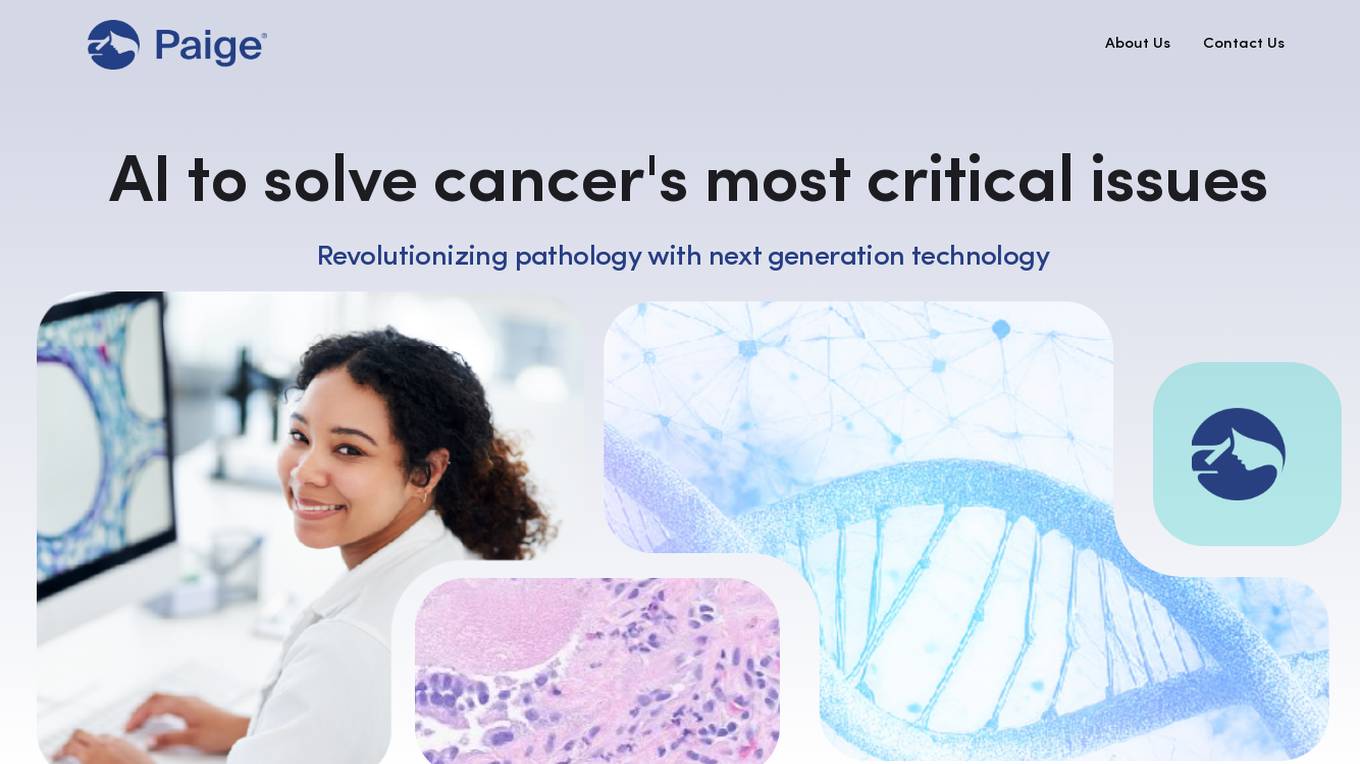
Paige AI
Paige is a leading AI company revolutionizing pathology with next-generation technology. They provide diagnostic and biomarker AI, predictive analytics technology, and AI-assisted applications to support cancer detection, subtyping, and molecular biomarker discovery from tissue samples. Paige offers a range of AI suites for prostate, breast, colon, and PanCancer, as well as the innovative Paige Alba™ multi-modal co-pilot. Their advanced AI technology and services help streamline AI development, optimize existing applications, and drive groundbreaking advancements in cancer care.
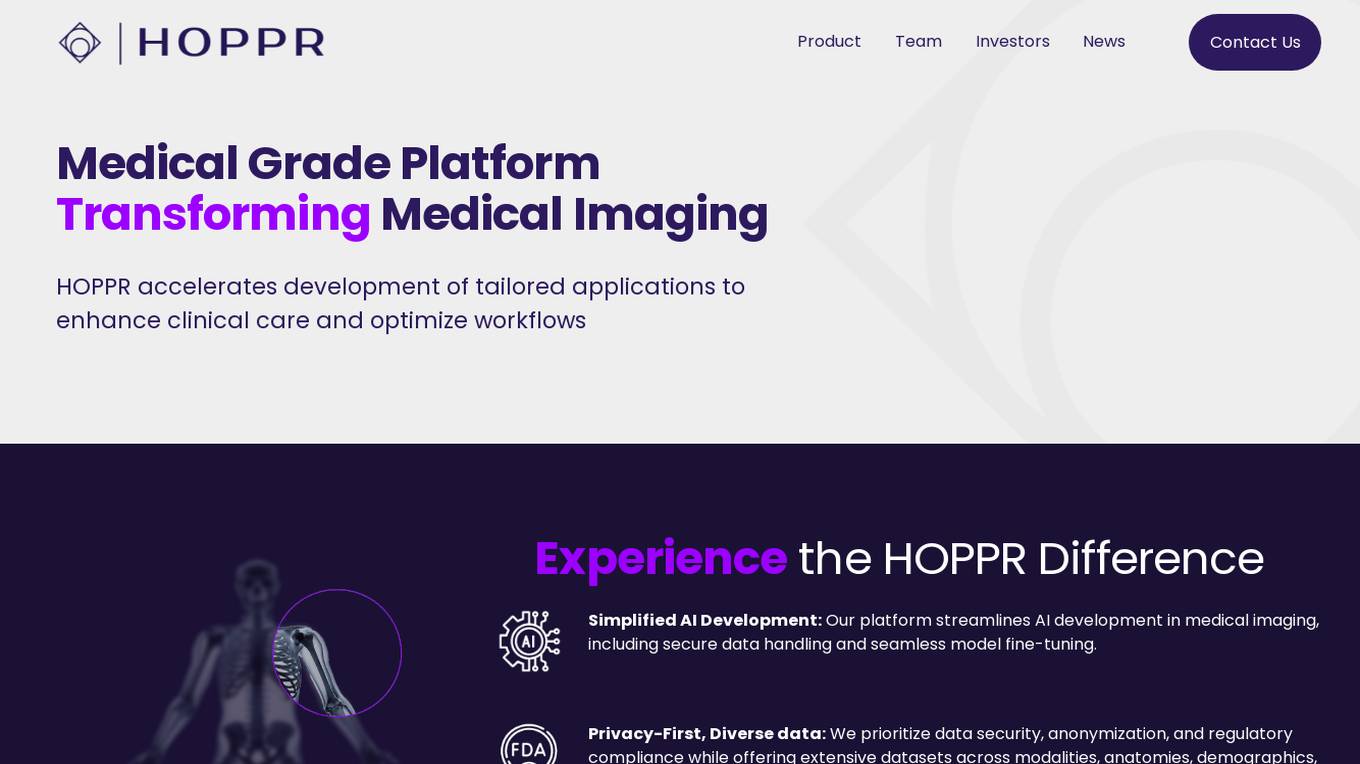
HOPPR
HOPPR is a medical-grade platform that accelerates the development of tailored applications to enhance clinical care and optimize workflows. The platform streamlines AI development in medical imaging, prioritizes data security and privacy, and offers diverse datasets across modalities, anatomies, demographics, and geographies. HOPPR empowers faster prototyping, hypothesis testing, and scalable applications for research and medical imaging services, addressing the growing crisis in medical imaging by enabling partners to rapidly develop solutions that improve patient care, enhance operational efficiency, and increase clinician satisfaction.
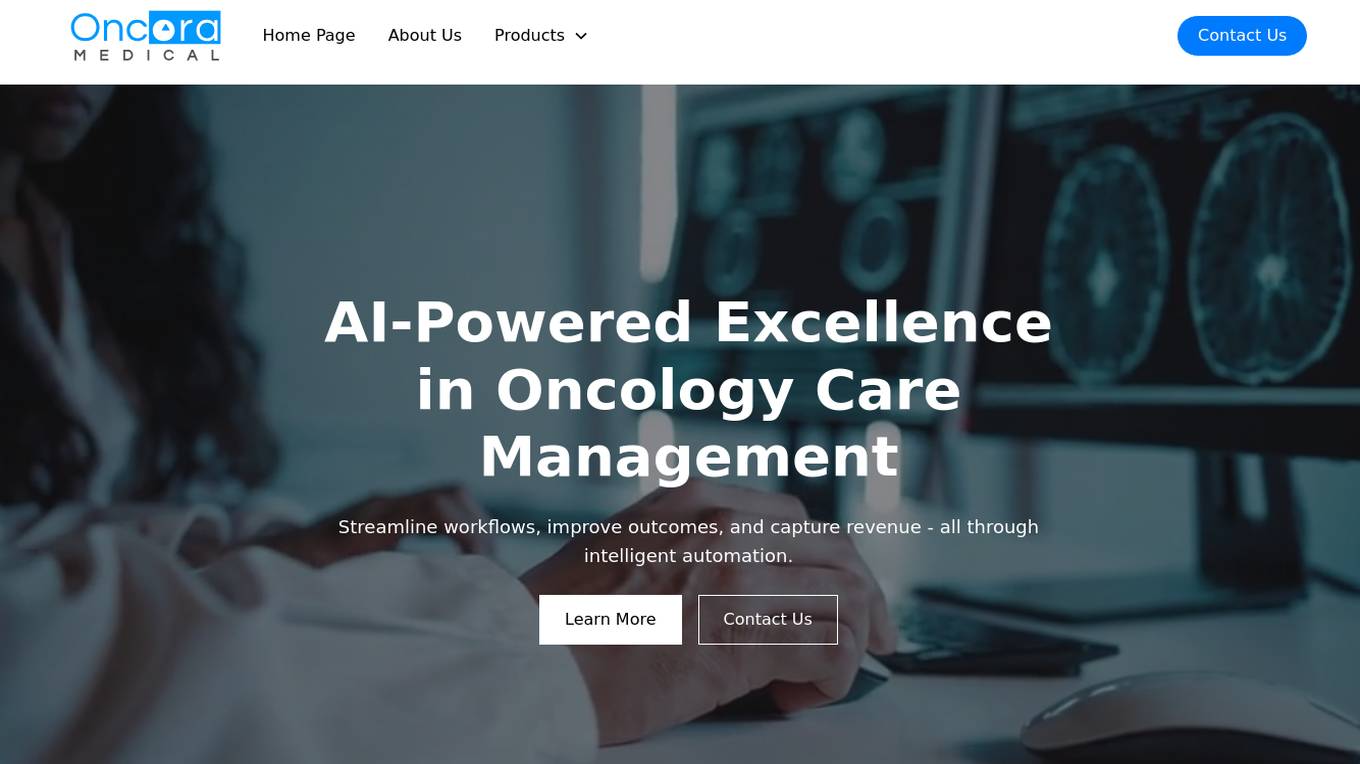
Oncora Medical
Oncora Medical is an AI-powered platform that revolutionizes oncology care management. The platform offers a Clinical Data Platform for automating document generation and enhancing registry informatics. It provides AI-enabled case findings, revenue cycle management solutions, and cancer registry automation. Oncora's comprehensive AI solutions streamline workflows, improve outcomes, and capture revenue through intelligent automation. Trusted by top healthcare organizations worldwide, Oncora empowers healthcare organizations to achieve remarkable results in oncology care.
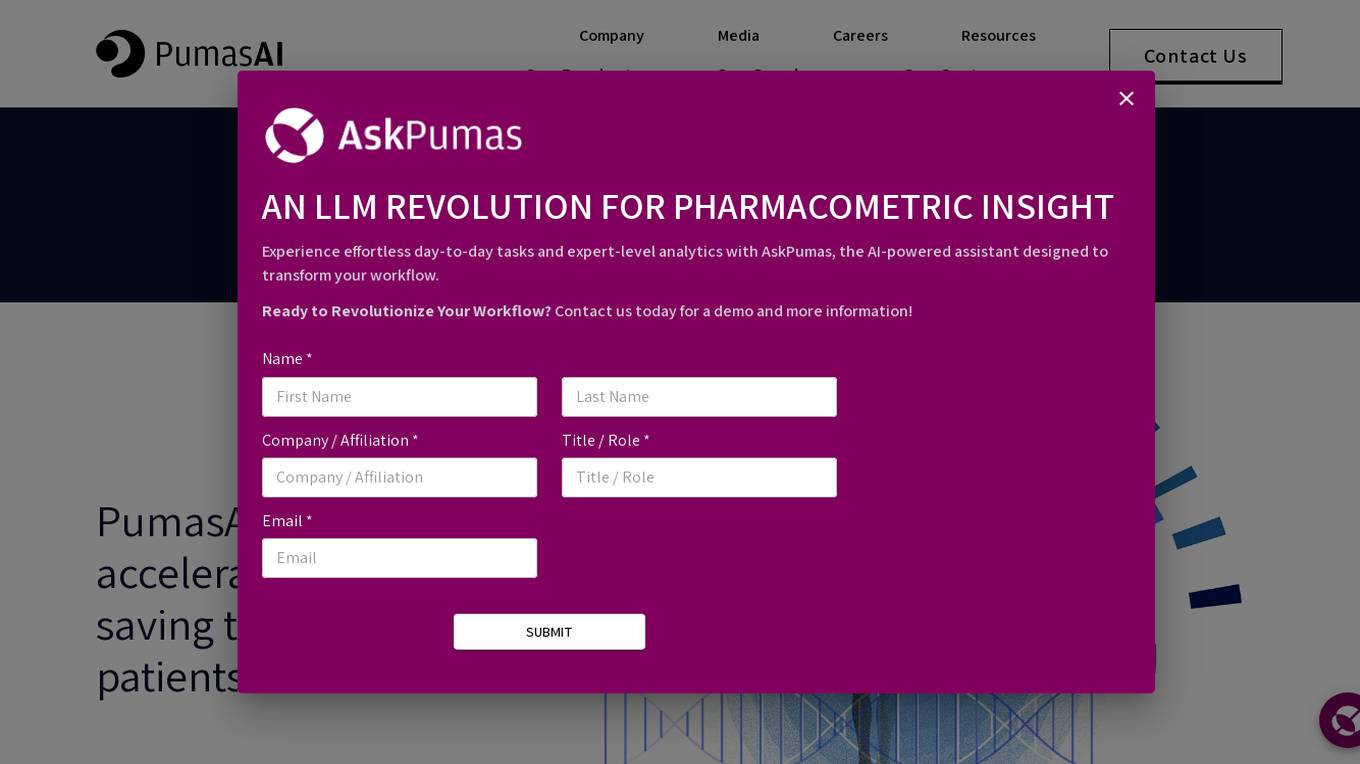
PumasAI
PumasAI is an AI tool designed to accelerate access to life-saving treatments for patients by providing data analytics tools and personalized treatments for drug development and healthcare delivery needs. The company has been recognized for its innovative contributions to the pharmaceutical industry, helping in making data-driven decisions more efficiently. PumasAI aims to save time and money for its clients through its fine-tuned offerings and successful regulatory submissions.
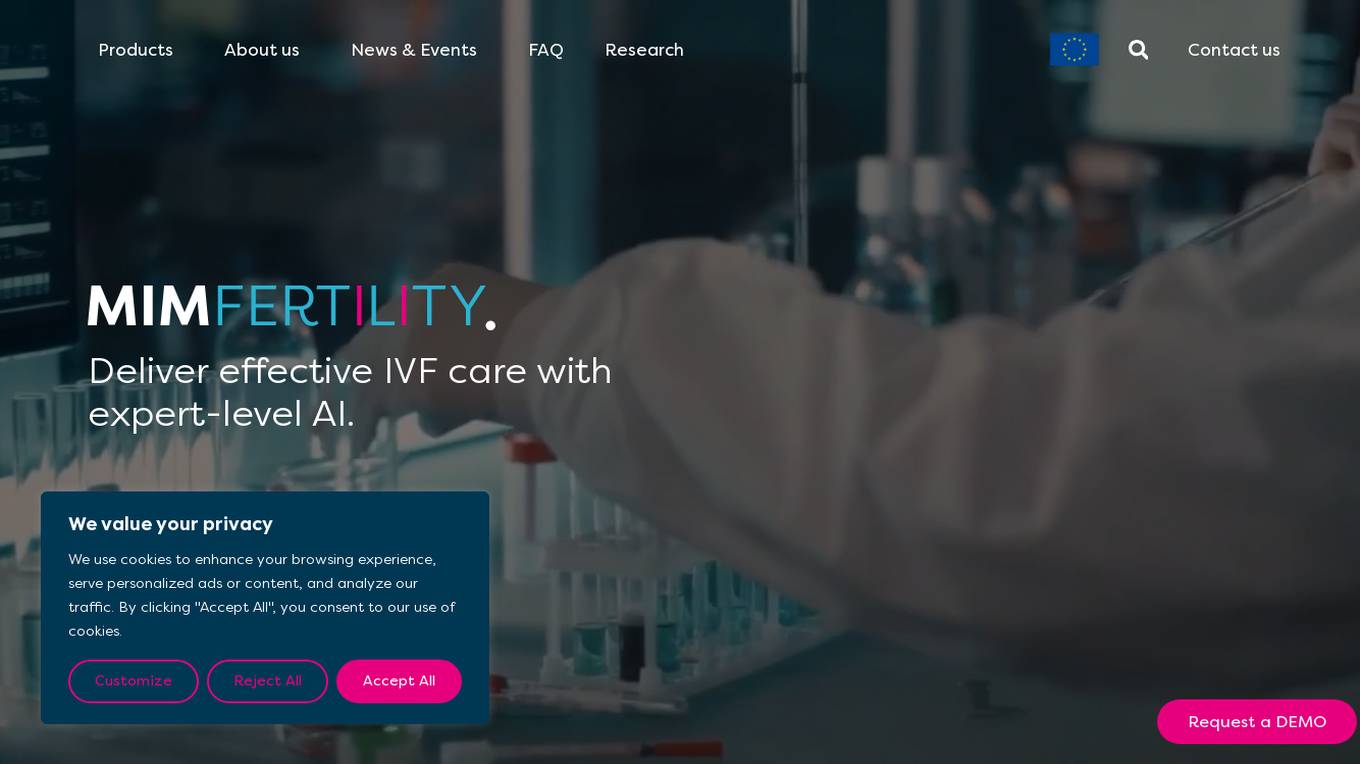
MIM Fertility
MIM Fertility is an AI-powered platform offering certified AI/ML solutions for fertility specialists. Their applications, EMBRYOAID® and FOLLISCAN®, assist in embryo assessment and ovarian follicular monitoring, respectively. The platform aims to deliver effective IVF care by automating imaging workflows and enhancing diagnostic accuracy through AI technology. MIM Fertility collaborates with top clinics and IVF equipment manufacturers to advance reproductive health through innovative technologies and groundbreaking research.
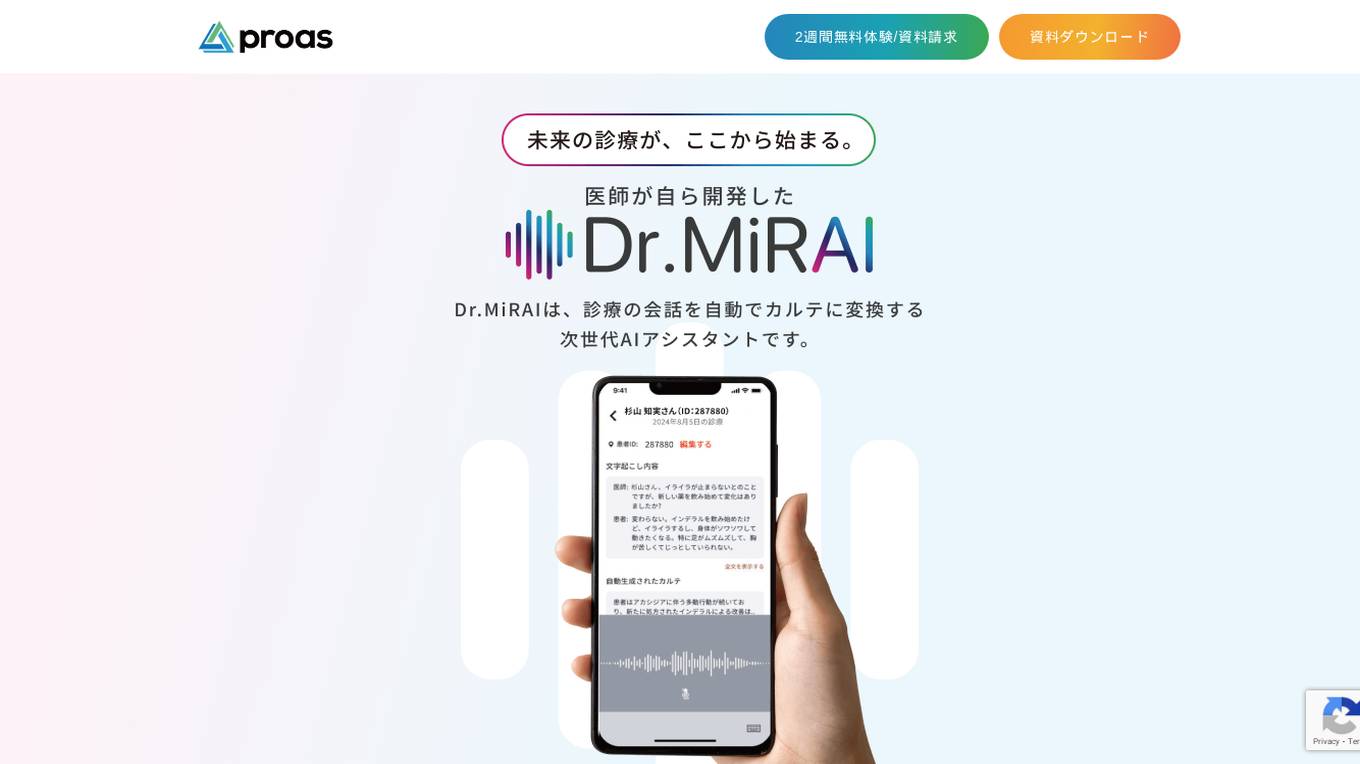
Dr.MiRAI
Dr.MiRAI is a next-generation AI assistant that automatically converts medical conversations into medical records. It simplifies the process of generating electronic medical records by using AI to transcribe voice data from medical consultations. The application helps save time spent on recording tasks, allowing healthcare professionals to focus more on patient interactions. It also ensures accuracy by reducing human errors in manual record-keeping. Dr.MiRAI offers features such as automatic conversion to required document formats, integration with existing electronic medical record systems, and continuous learning capabilities.

CareCloud
CareCloud is a cloud-based and AI-powered healthcare solution that offers a comprehensive suite of tools to enhance financial performance, patient care, and operational efficiency for healthcare providers. The platform includes features such as Revenue Cycle Management, Electronic Health Records, Practice Management, Patient Experience Management, and Telehealth. CareCloud leverages AI technology to automate documentation, streamline workflows, optimize collections, and provide intelligent analytics for smarter healthcare management.
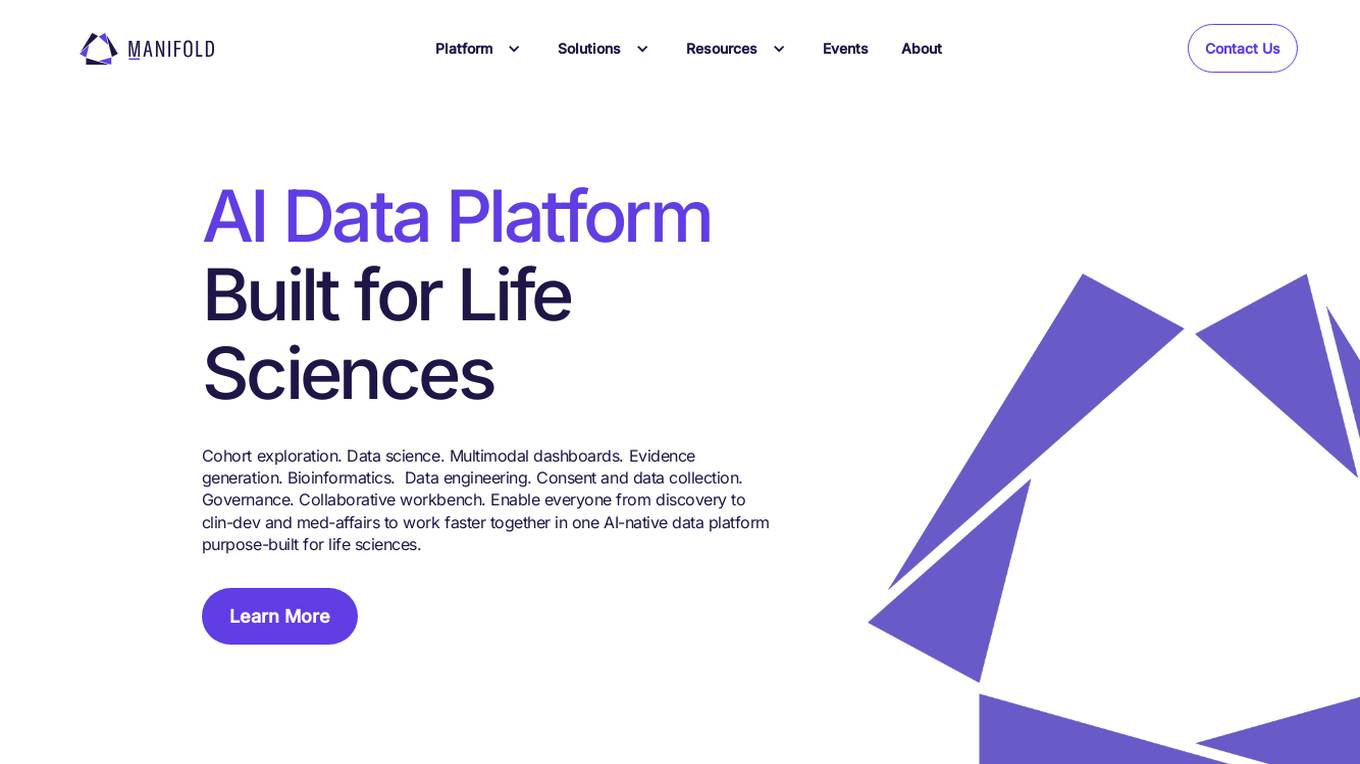
Manifold
Manifold is an AI data platform designed specifically for life sciences. It offers a collaborative workbench, data science tools, AI-powered cohort exploration, batch bioinformatics, data dashboards, data engineering solutions, access control, and more. The platform aims to enable faster collaboration and research in the life sciences field by providing a comprehensive suite of tools and features. Trusted by leading institutions, Manifold helps streamline data collection, analysis, and collaboration to accelerate scientific research.
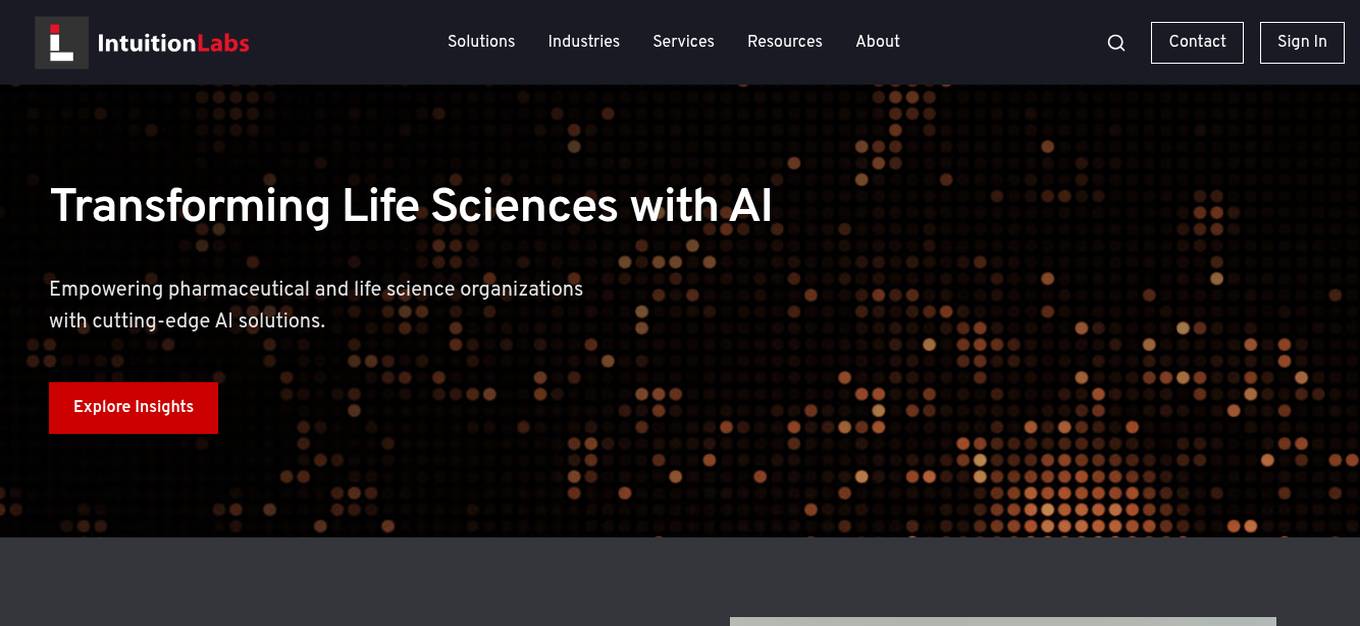
IntuitionLabs Solutions
IntuitionLabs Solutions is an AI software company specializing in providing cutting-edge AI solutions for the life sciences and pharmaceutical industries. They empower organizations with innovative AI tools to accelerate drug discovery, improve operational efficiency, and drive digital transformation. With a focus on regulatory compliance, enterprise integration, and data security, IntuitionLabs offers a range of AI-powered solutions tailored for pharmaceutical and life science organizations.
1 - Open Source Tools

cyclops
Cyclops is a toolkit for facilitating research and deployment of ML models for healthcare. It provides a few high-level APIs namely: data - Create datasets for training, inference and evaluation. We use the popular 🤗 datasets to efficiently load and slice different modalities of data models - Use common model implementations using scikit-learn and PyTorch tasks - Use common ML task formulations such as binary classification or multi-label classification on tabular, time-series and image data evaluate - Evaluate models on clinical prediction tasks monitor - Detect dataset shift relevant for clinical use cases report - Create model report cards for clinical ML models
20 - OpenAI Gpts
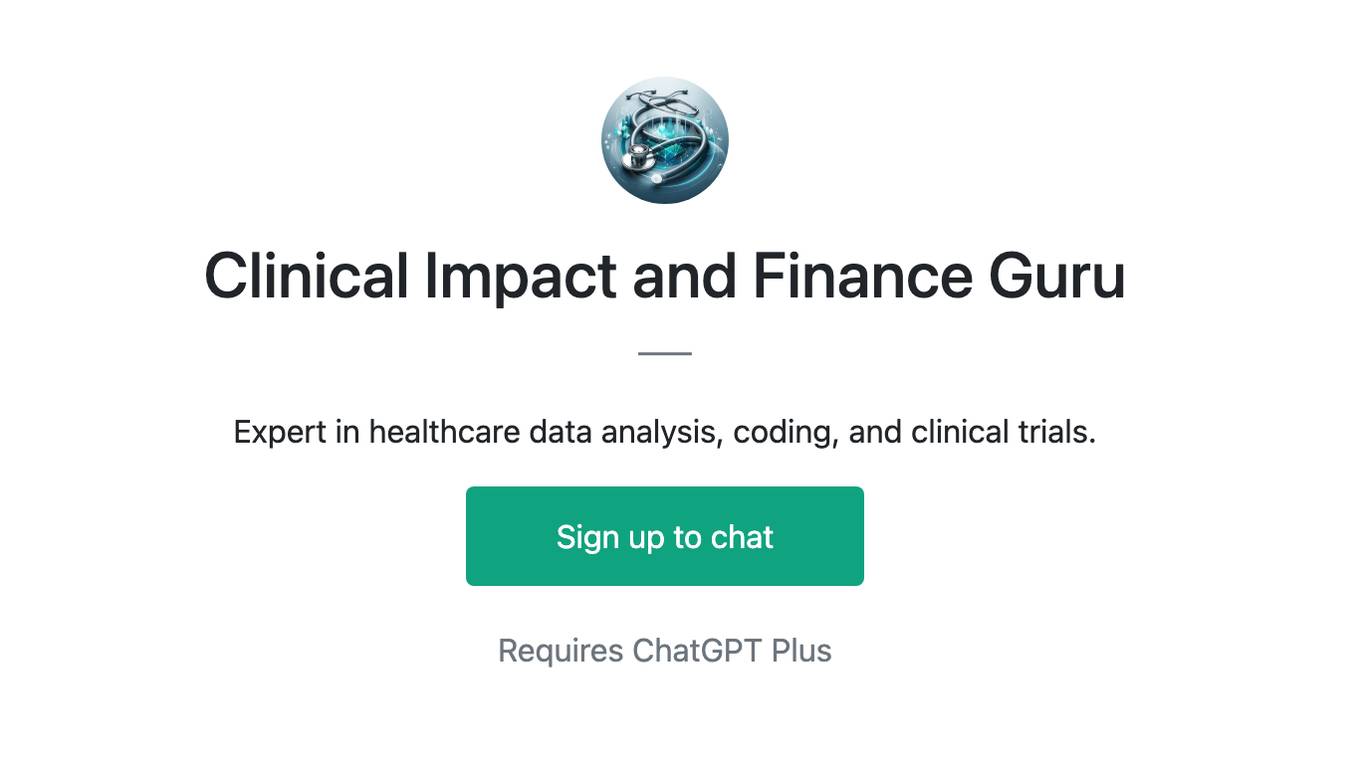
Clinical Impact and Finance Guru
Expert in healthcare data analysis, coding, and clinical trials.
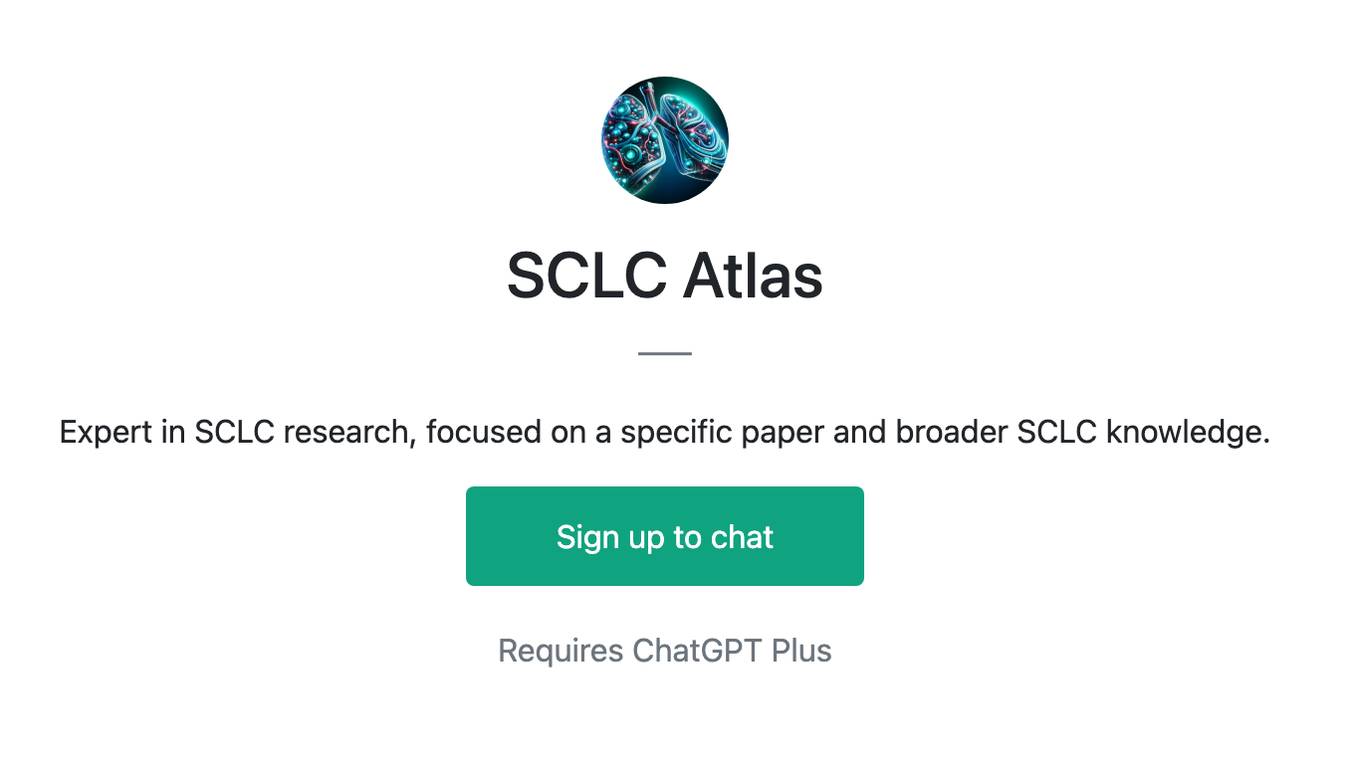
SCLC Atlas
Expert in SCLC research, focused on a specific paper and broader SCLC knowledge.
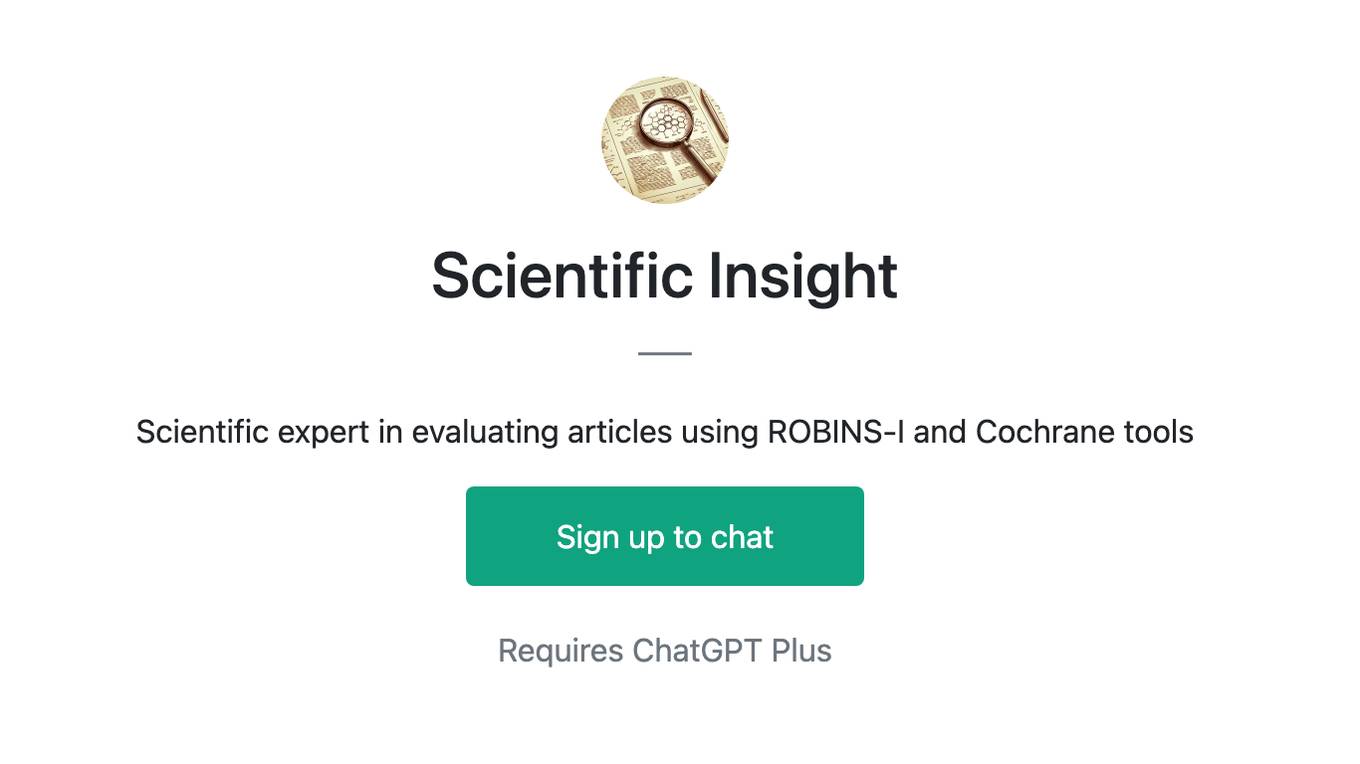
Scientific Insight
Scientific expert in evaluating articles using ROBINS-I and Cochrane tools
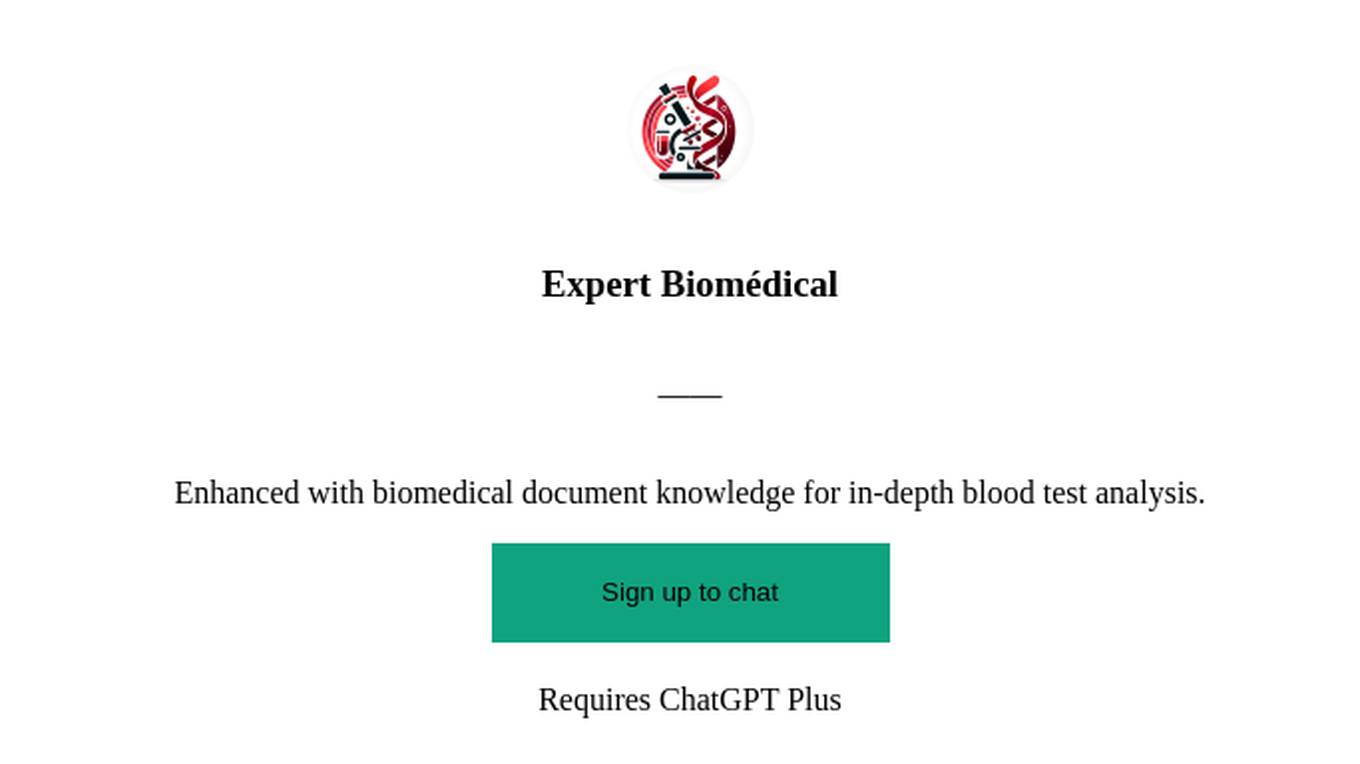
Expert Biomédical
Enhanced with biomedical document knowledge for in-depth blood test analysis.
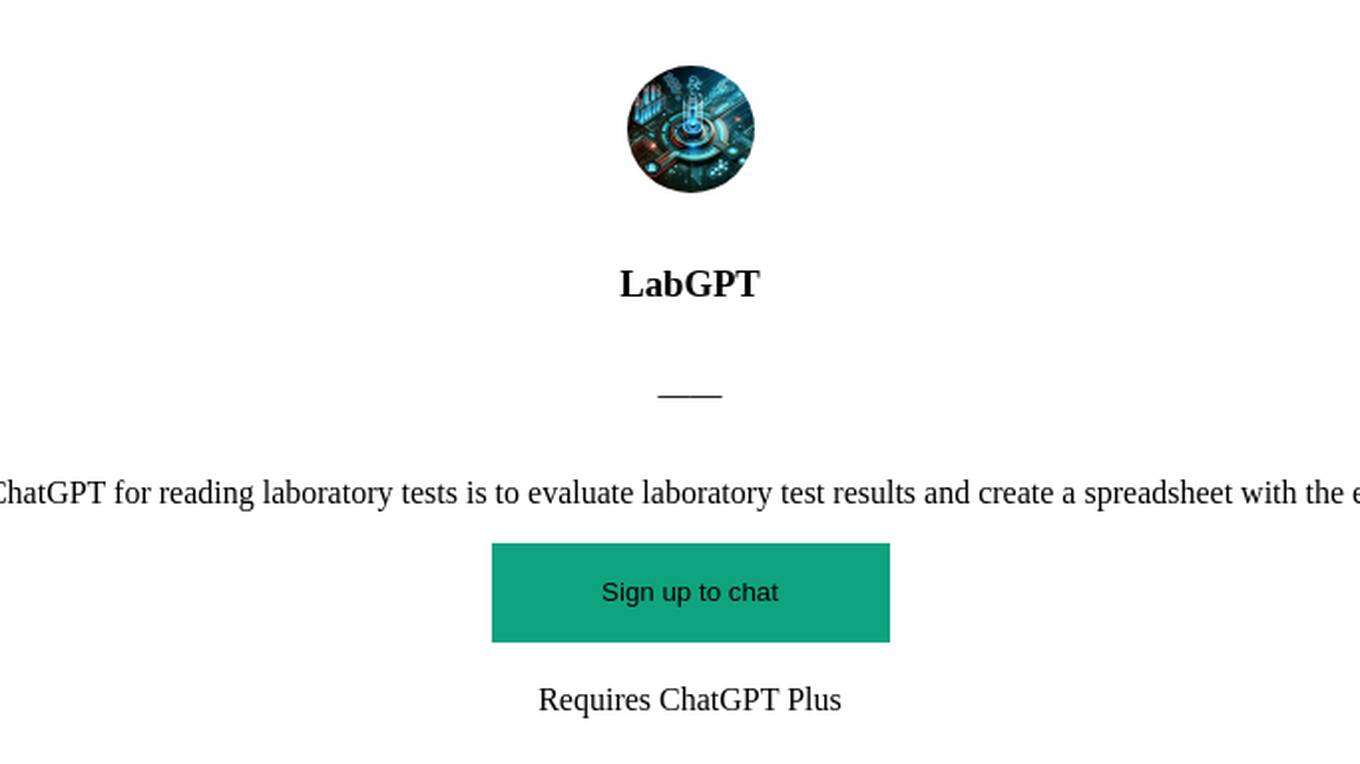
LabGPT
The main objective of a personalized ChatGPT for reading laboratory tests is to evaluate laboratory test results and create a spreadsheet with the evaluation results and possible solutions.
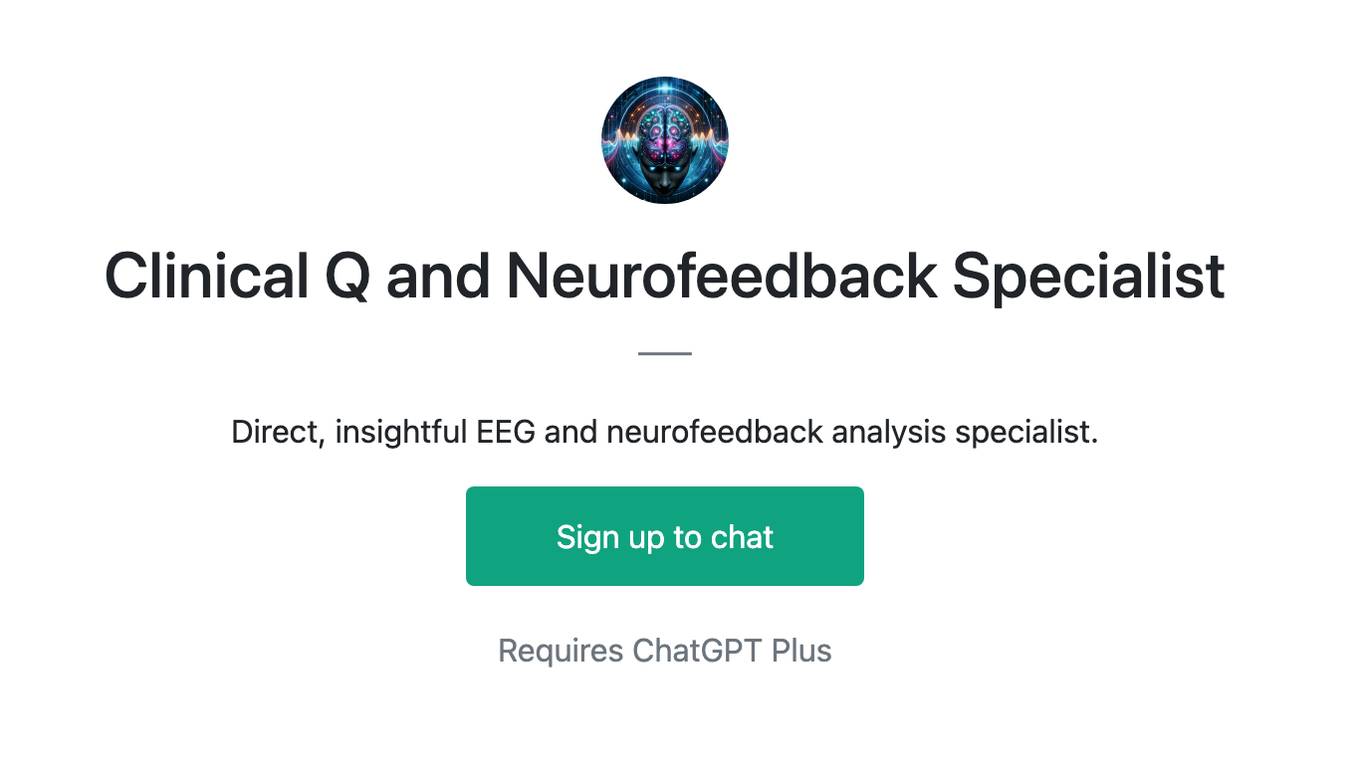
Clinical Q and Neurofeedback Specialist
Direct, insightful EEG and neurofeedback analysis specialist.

